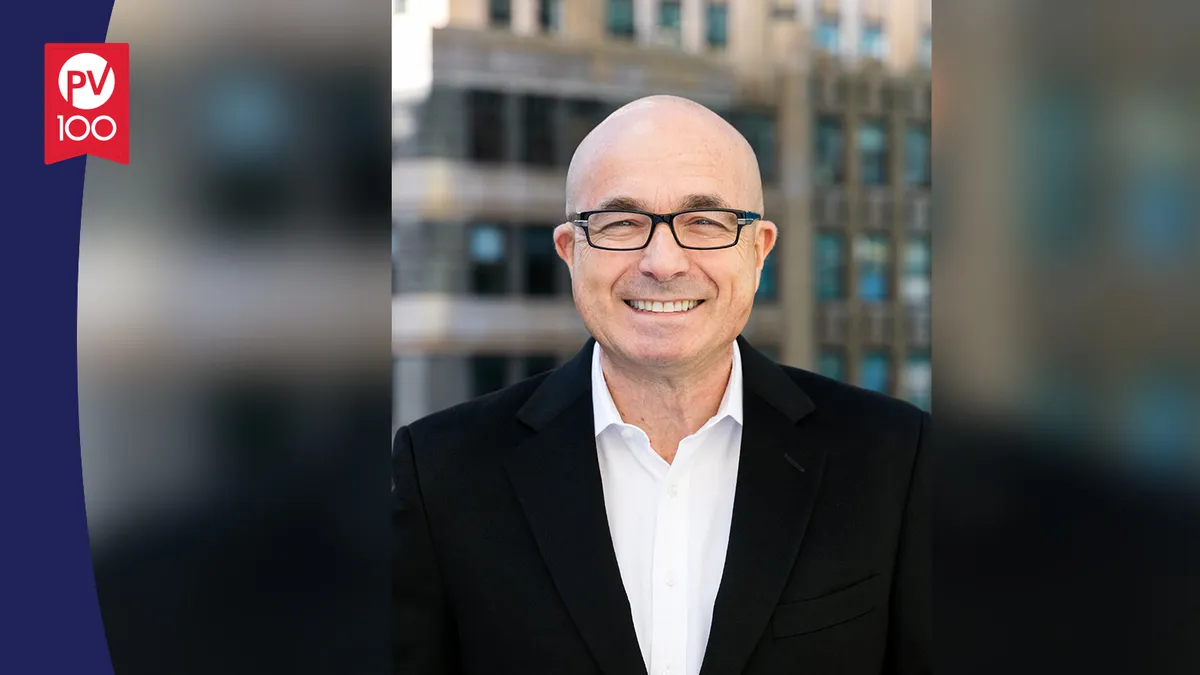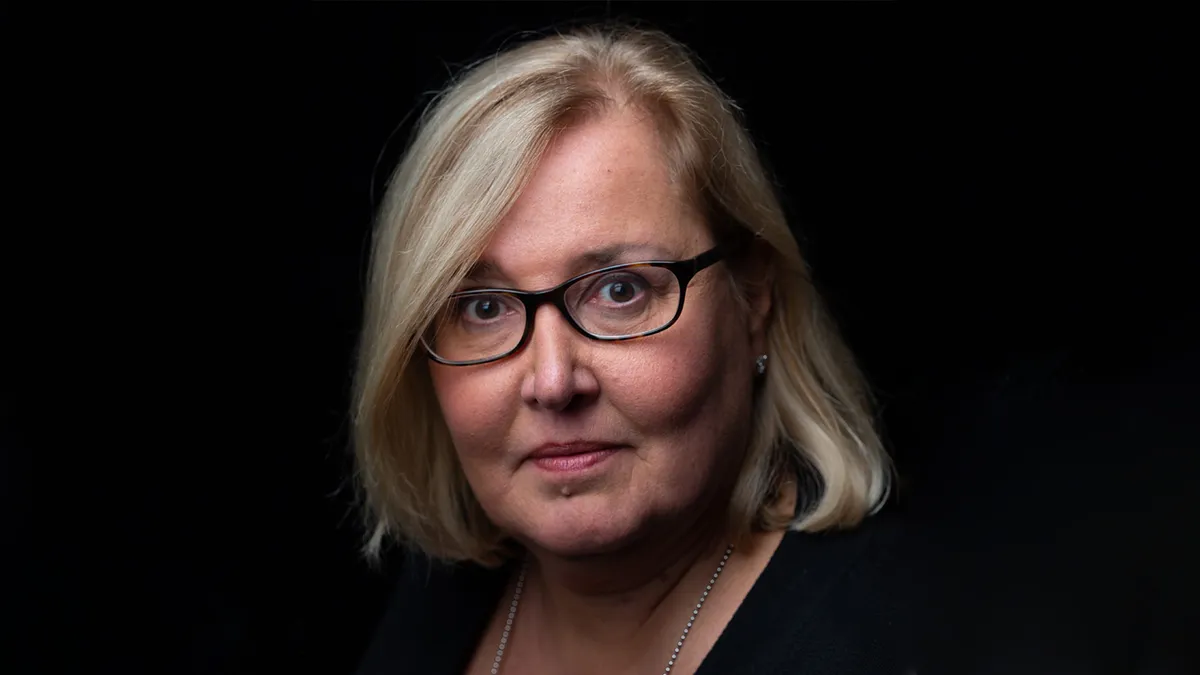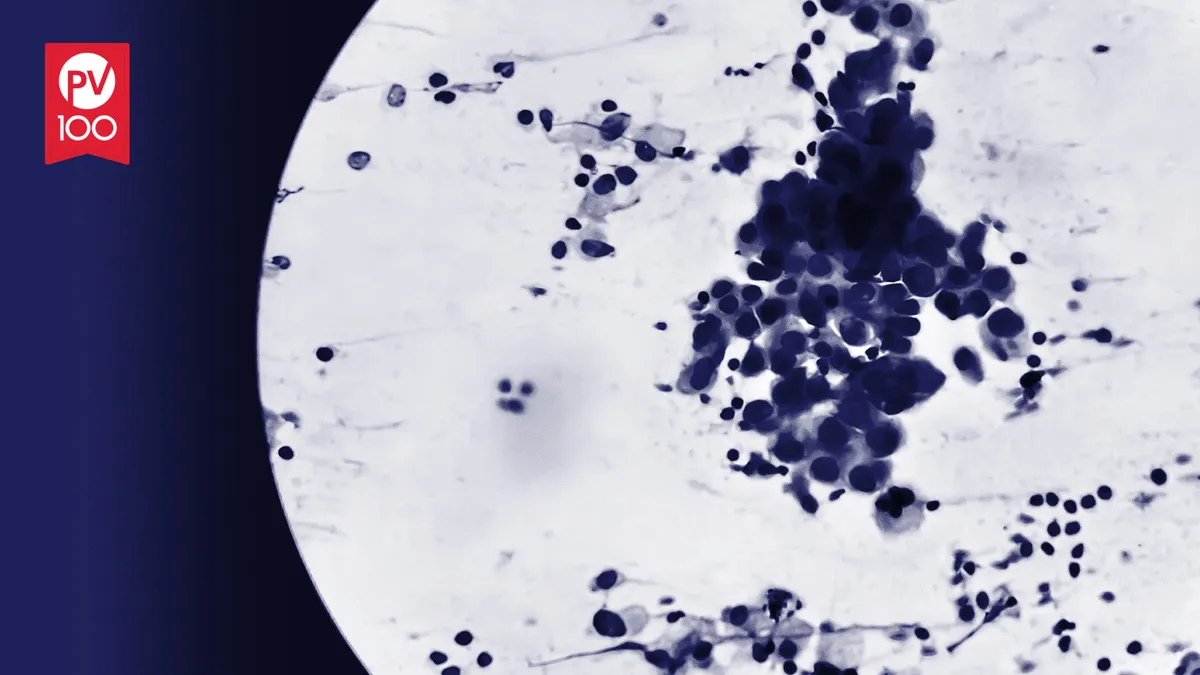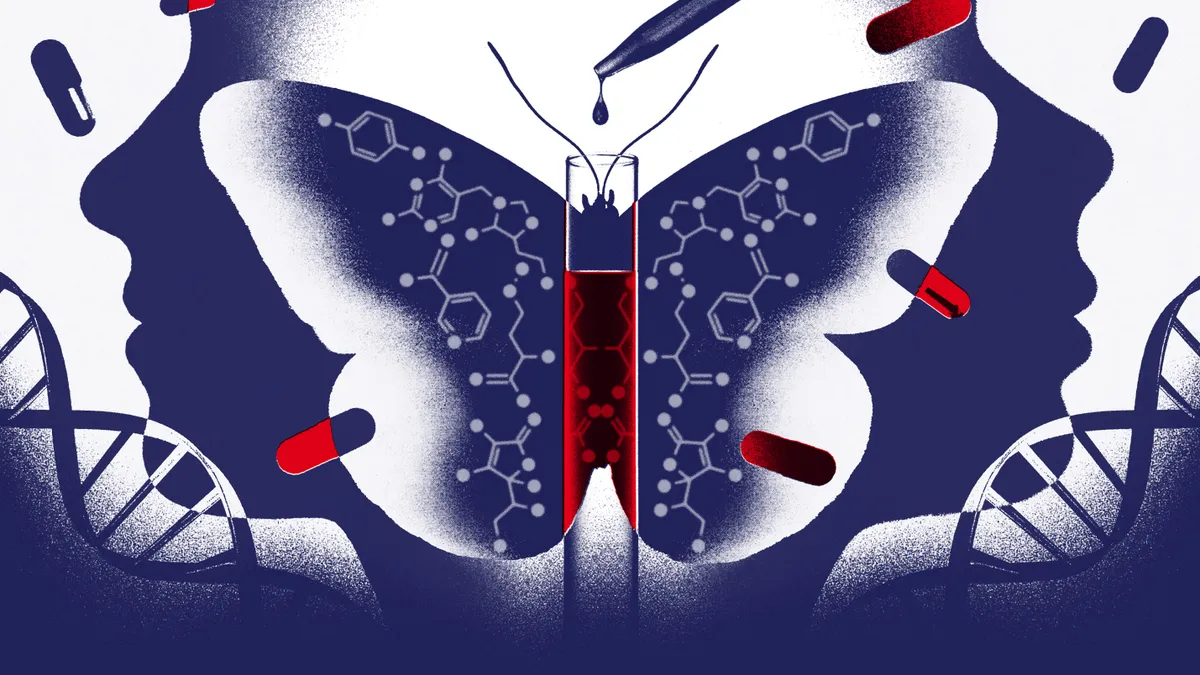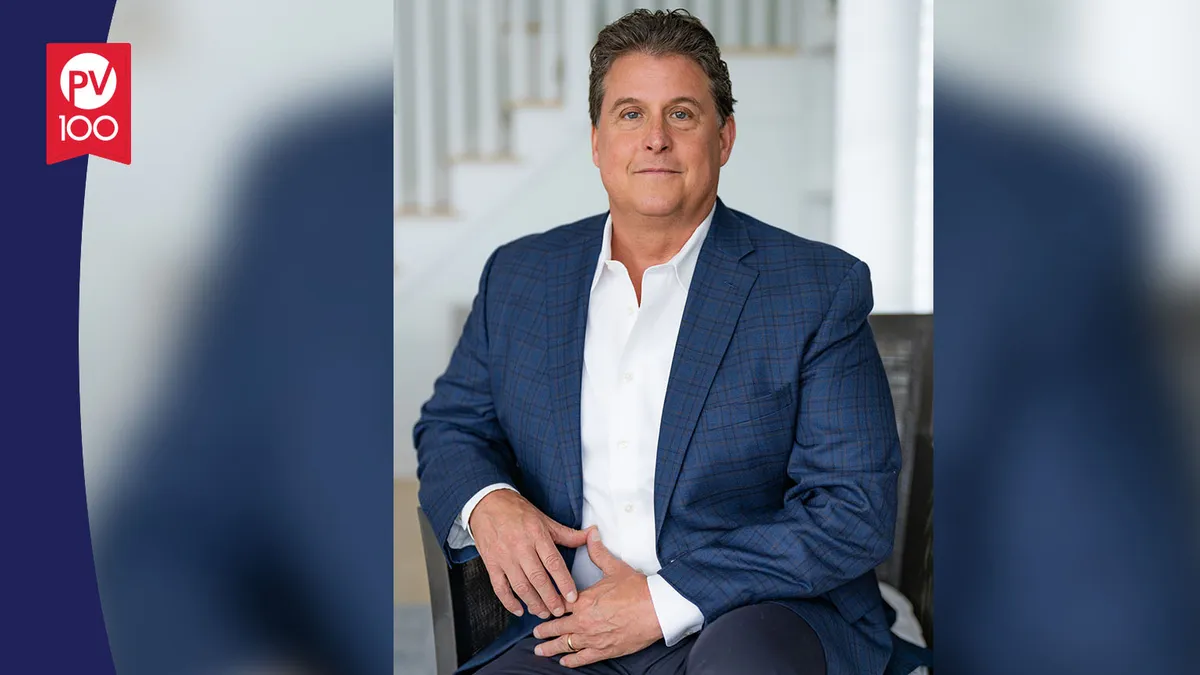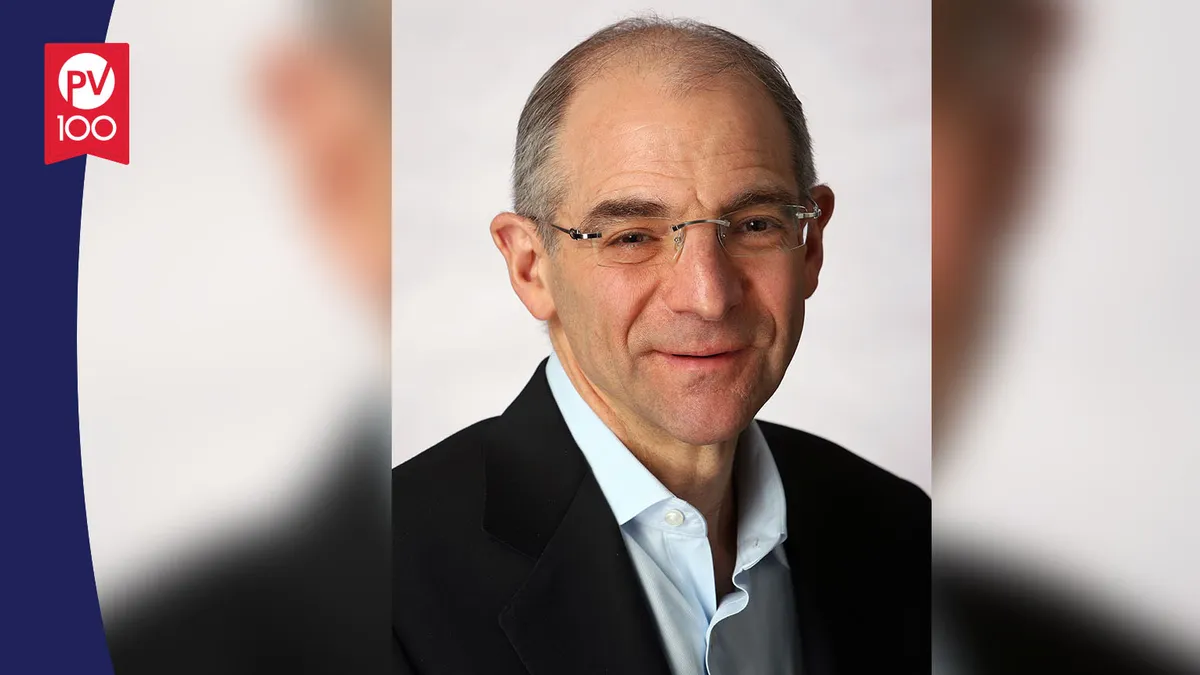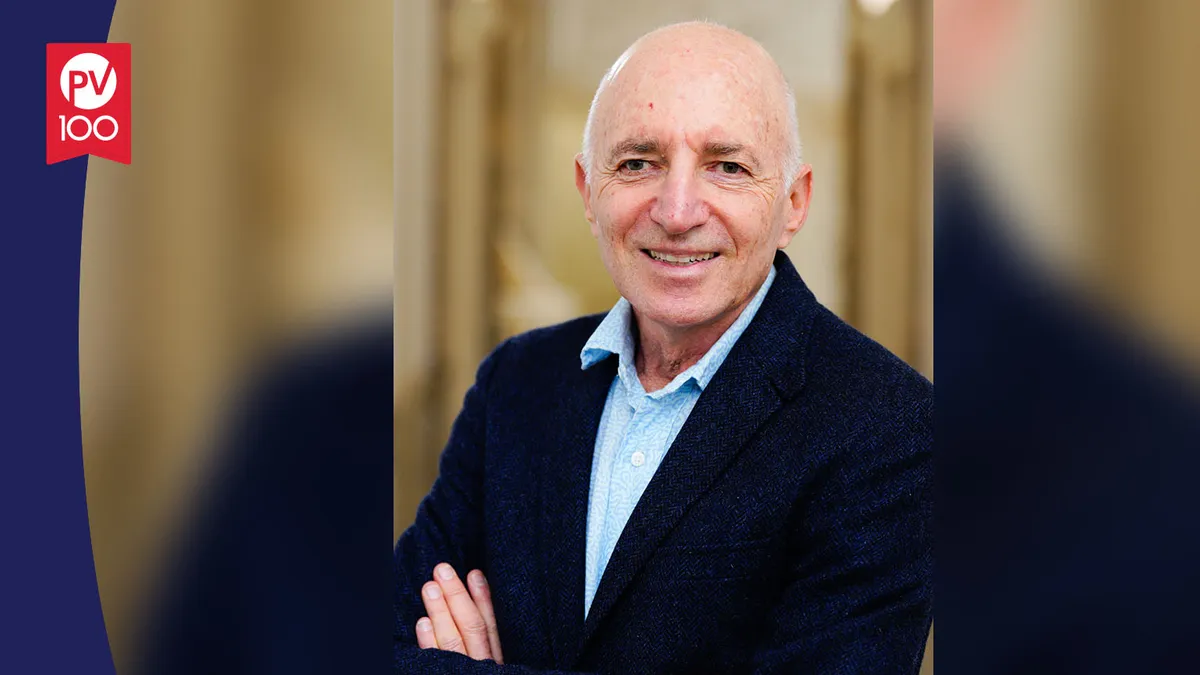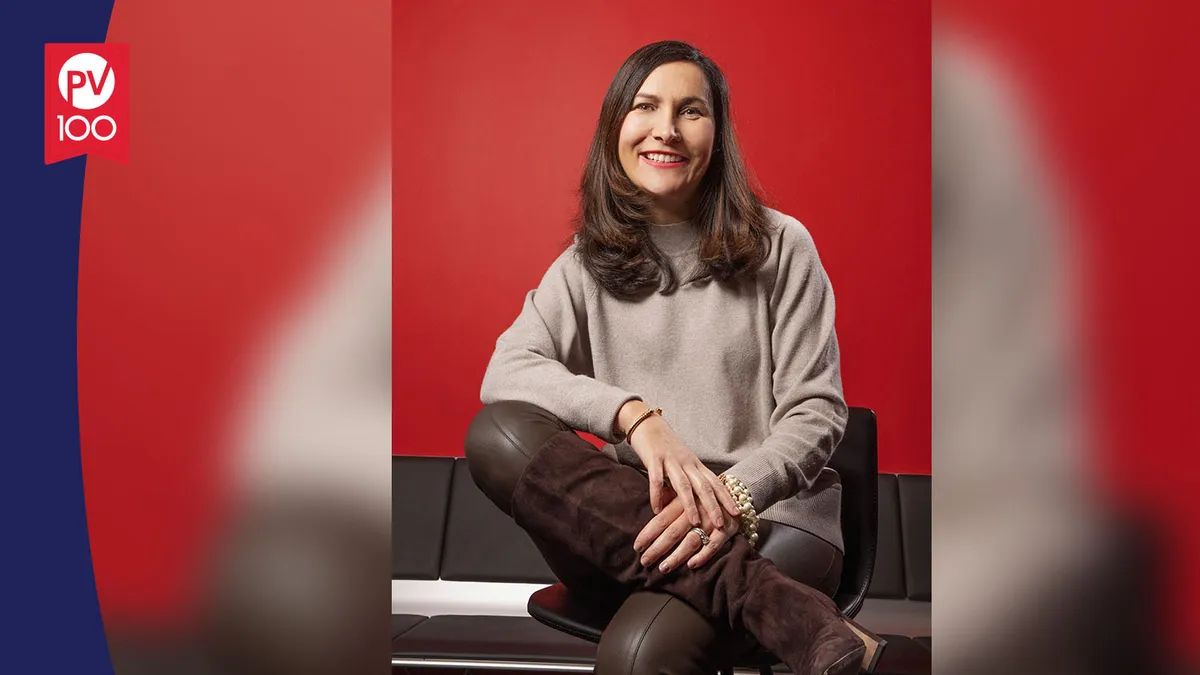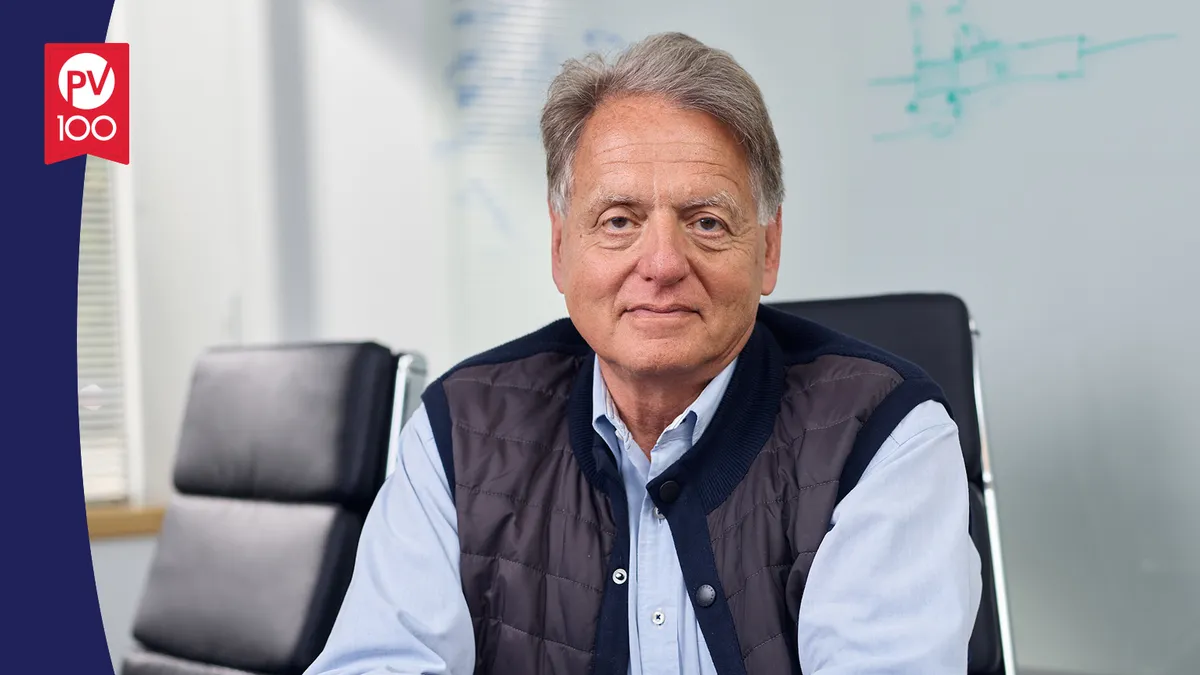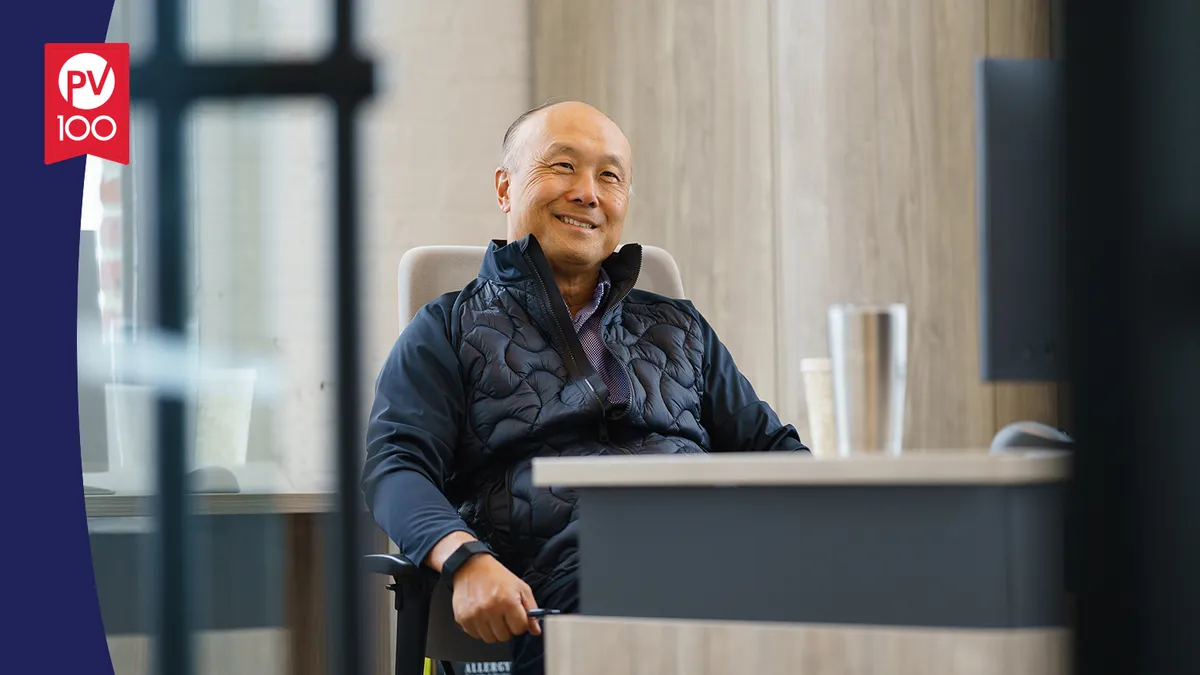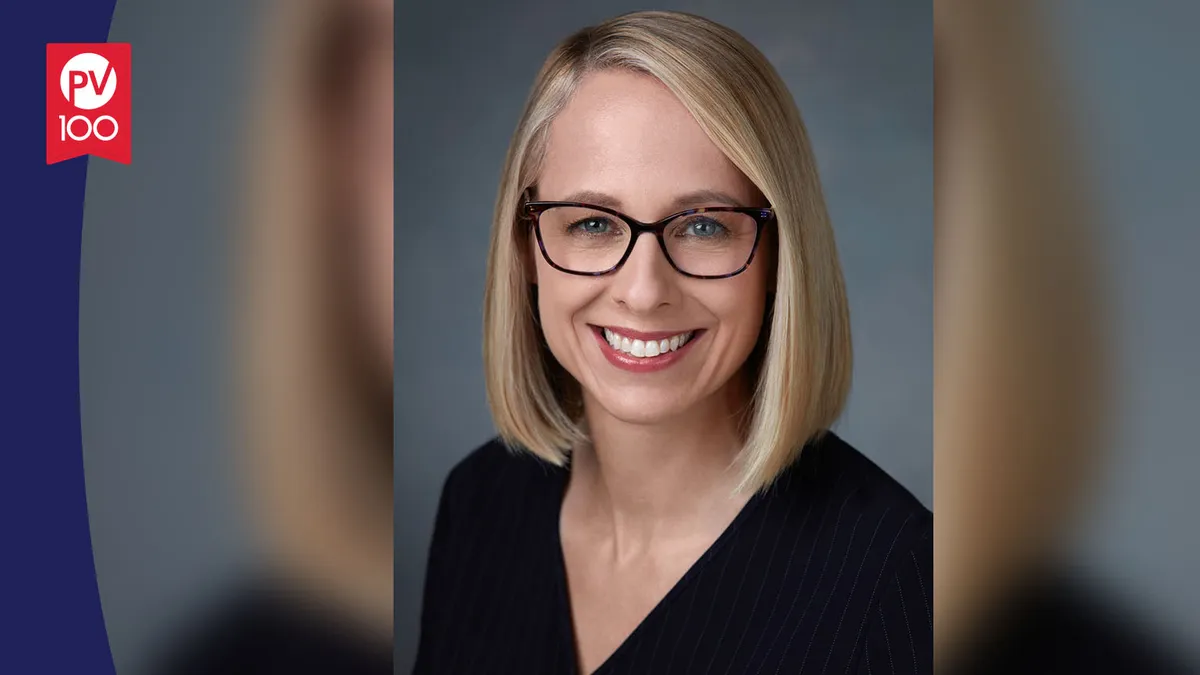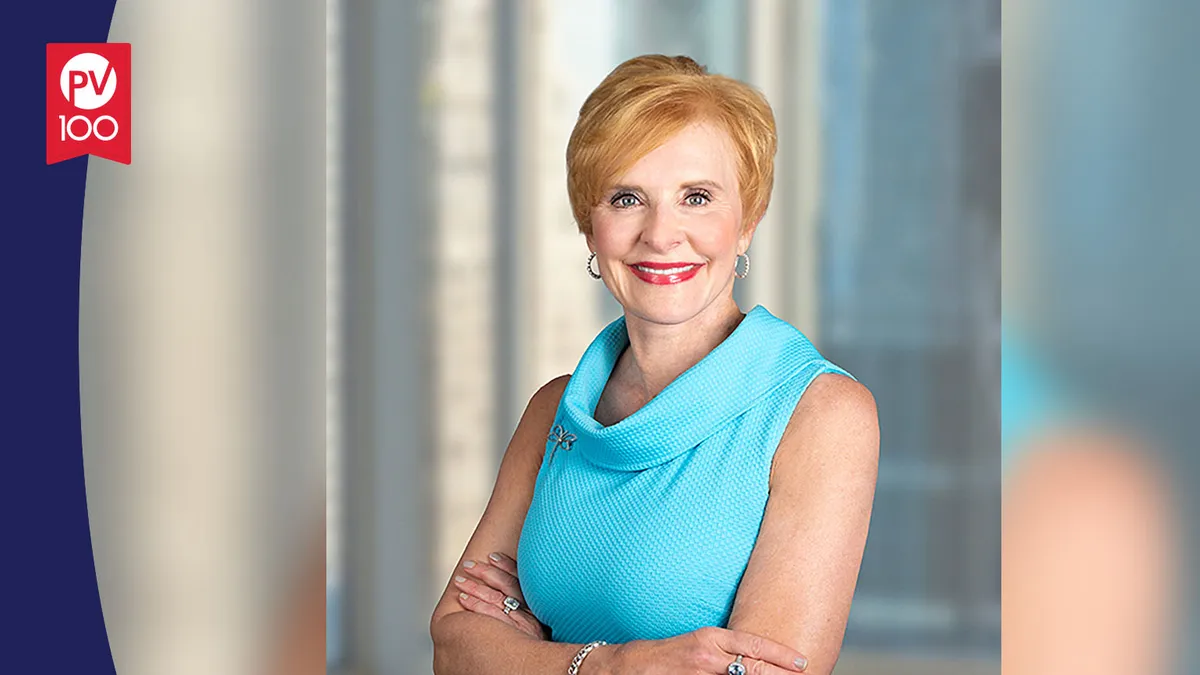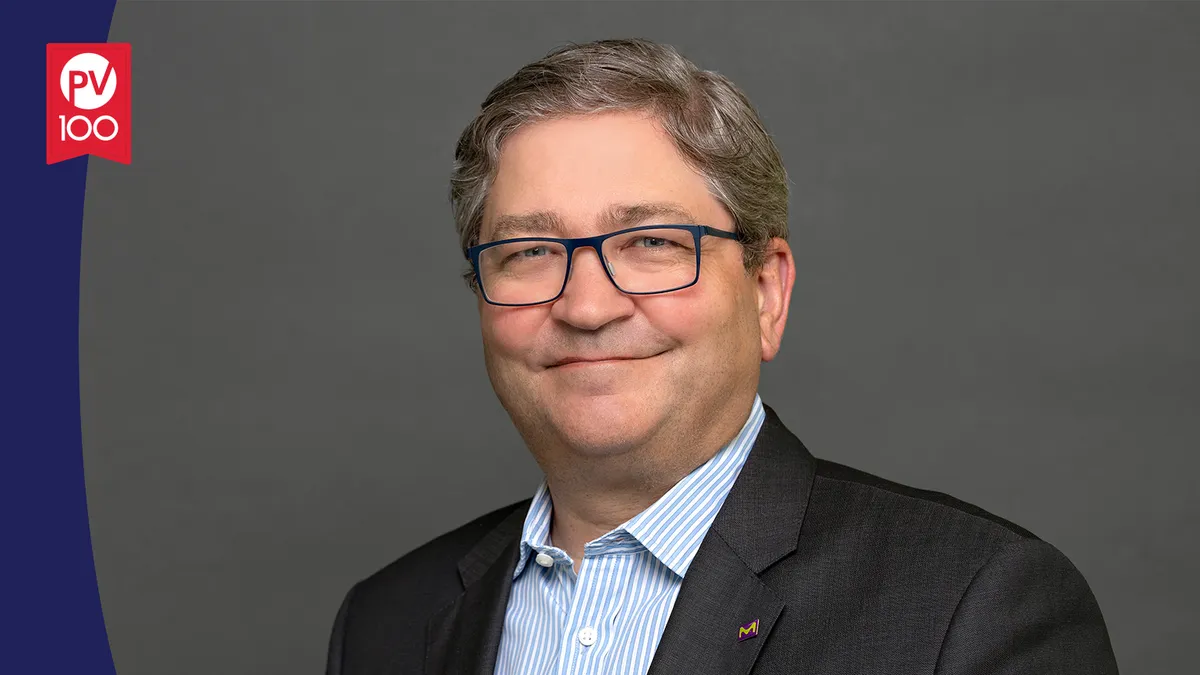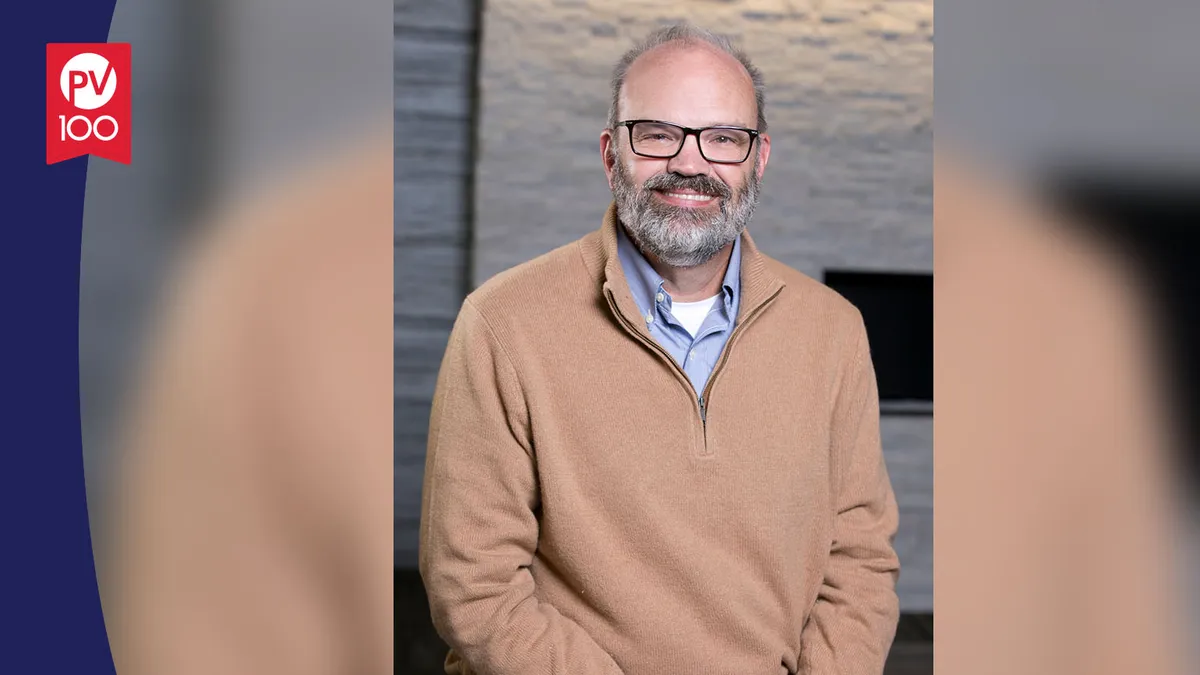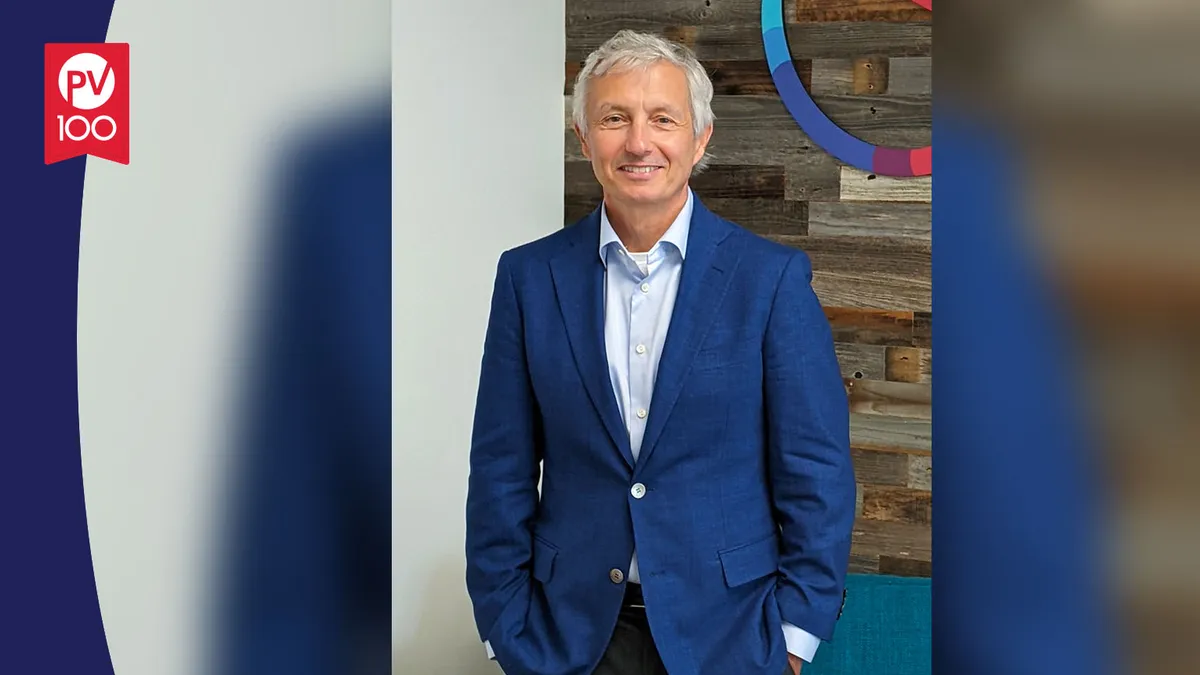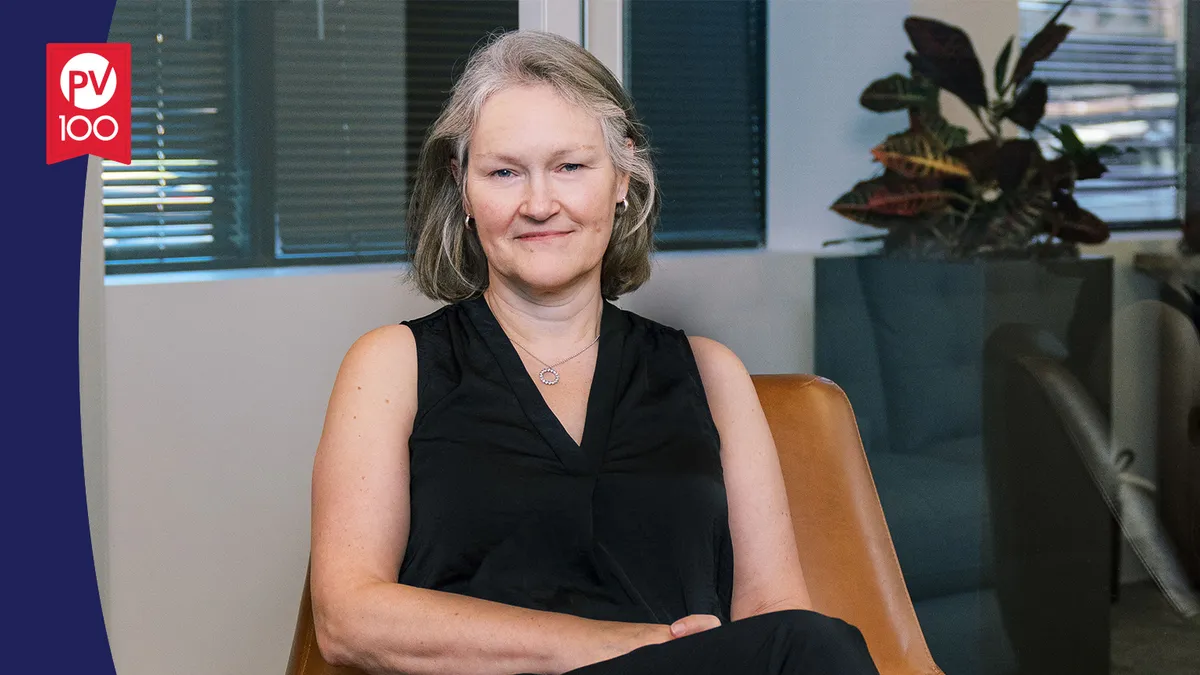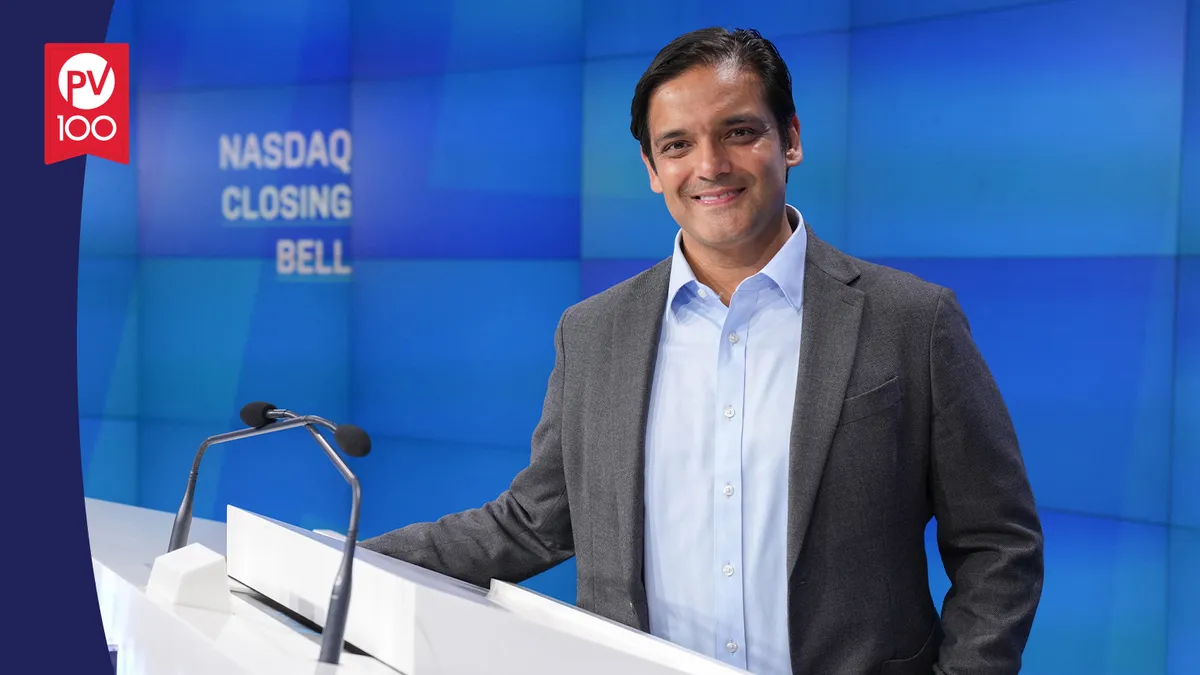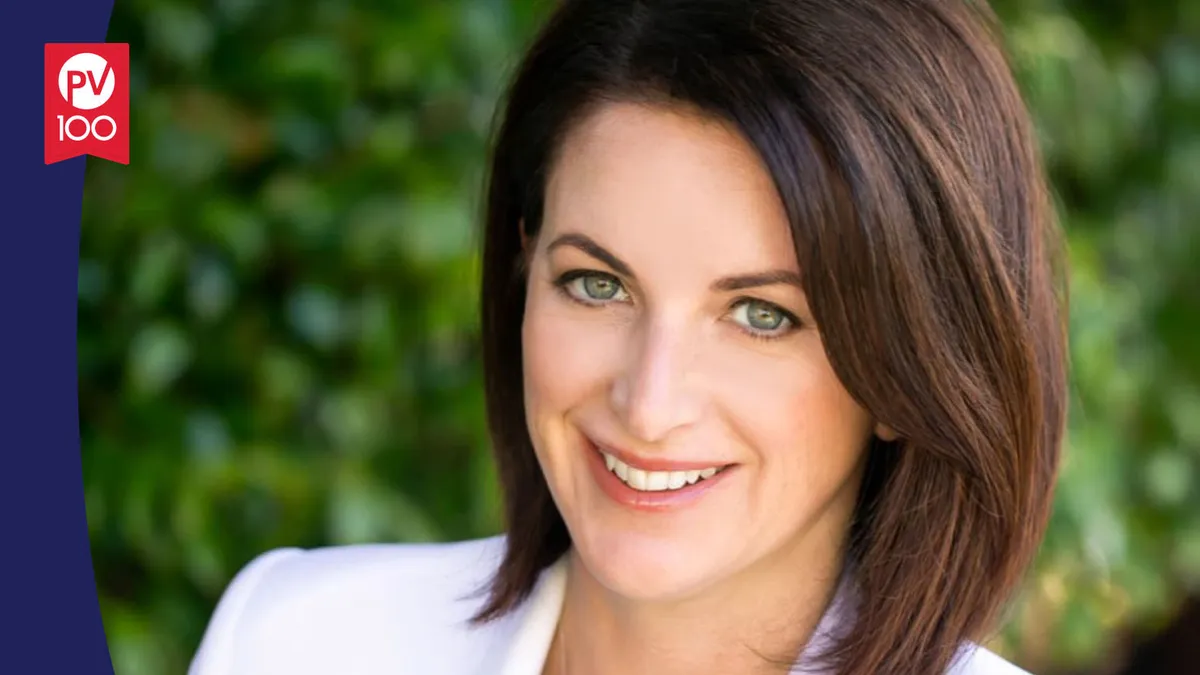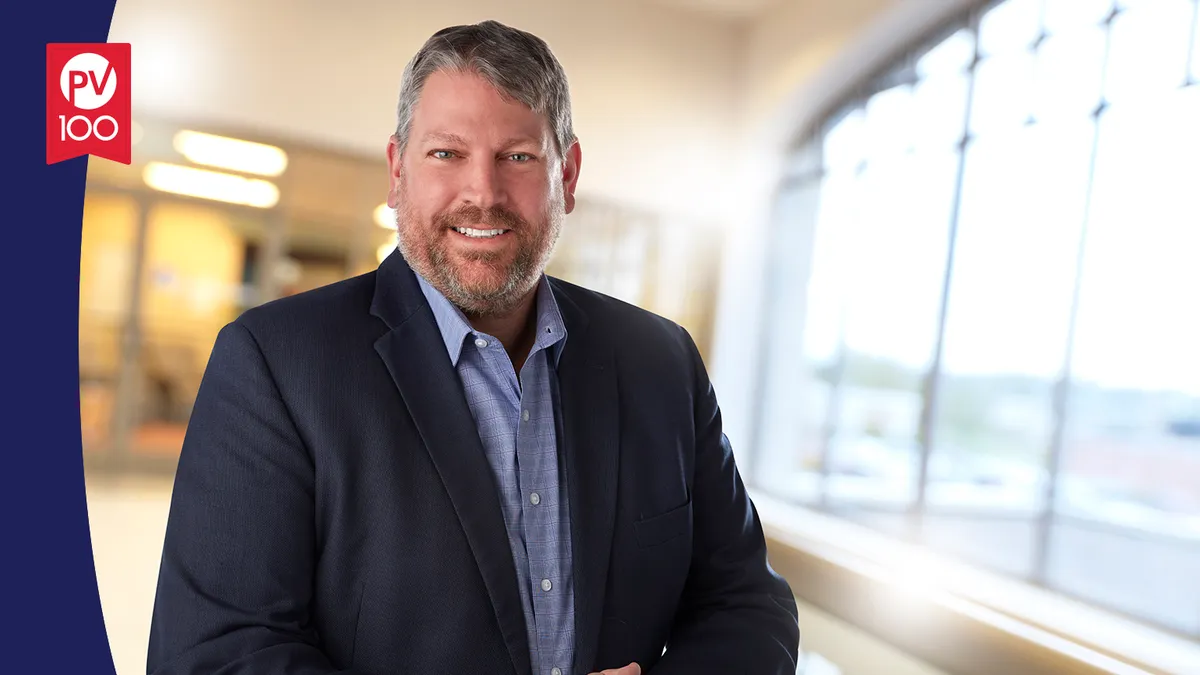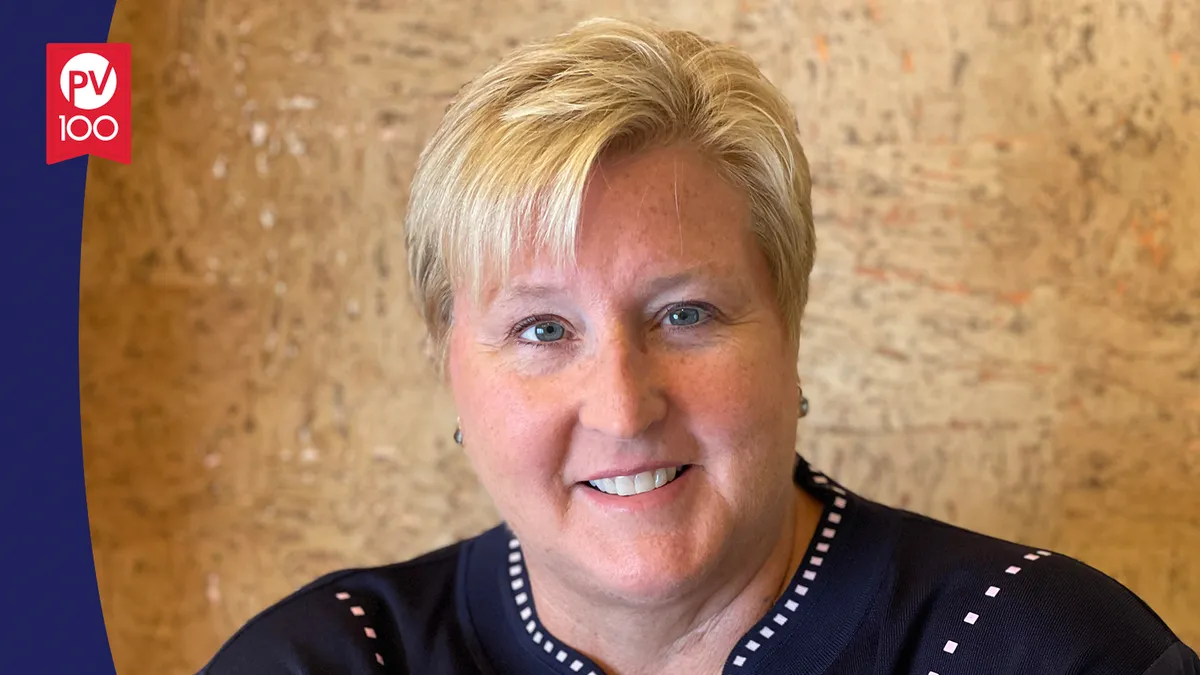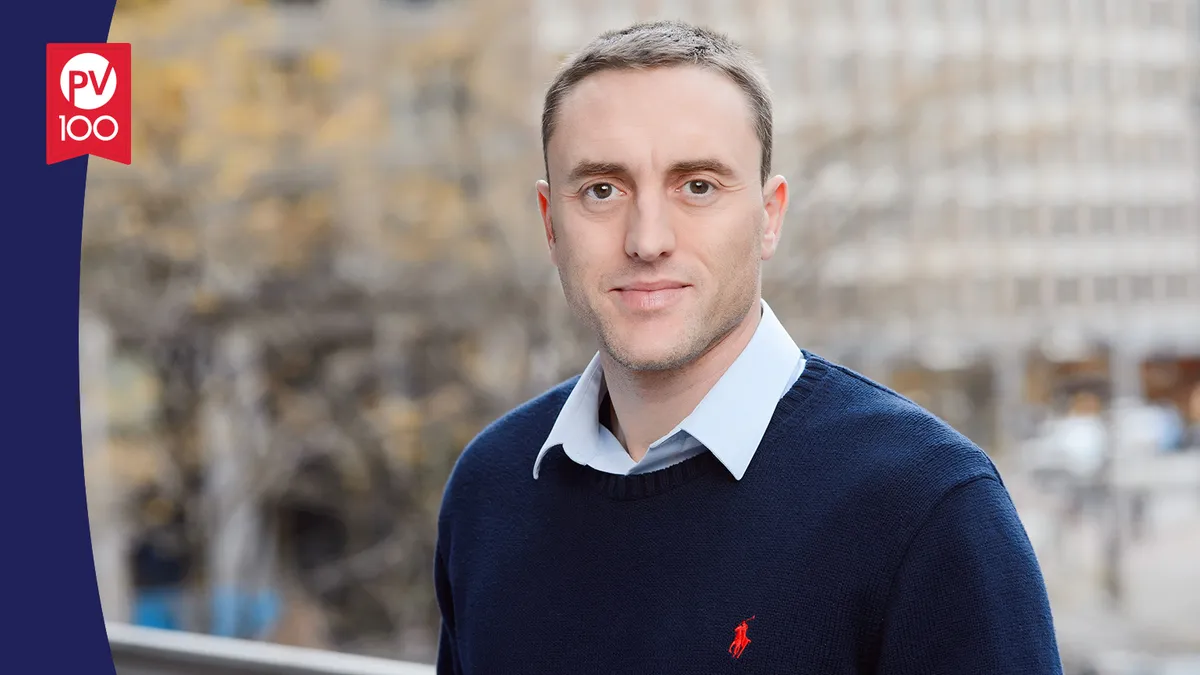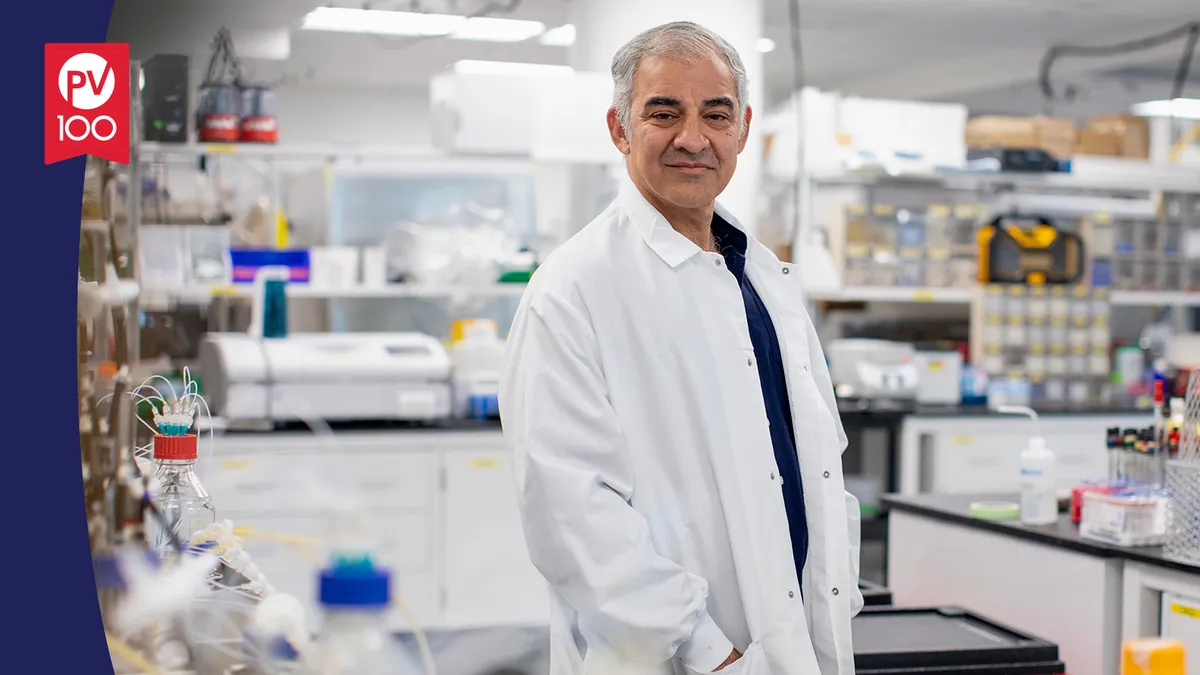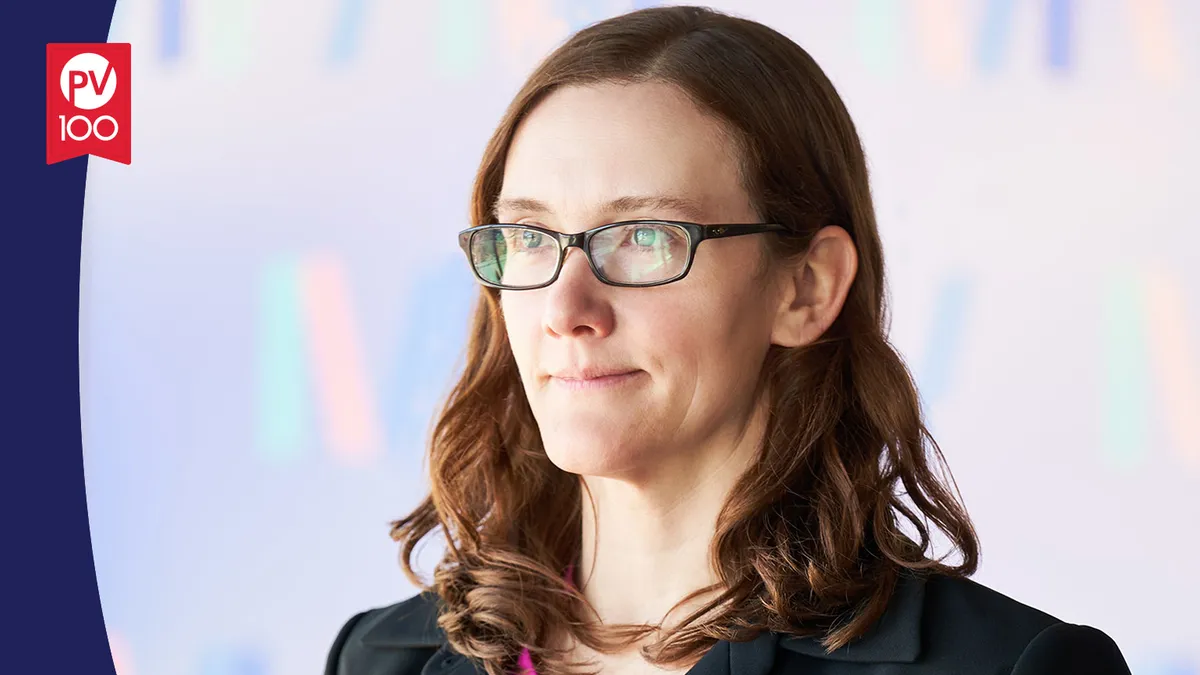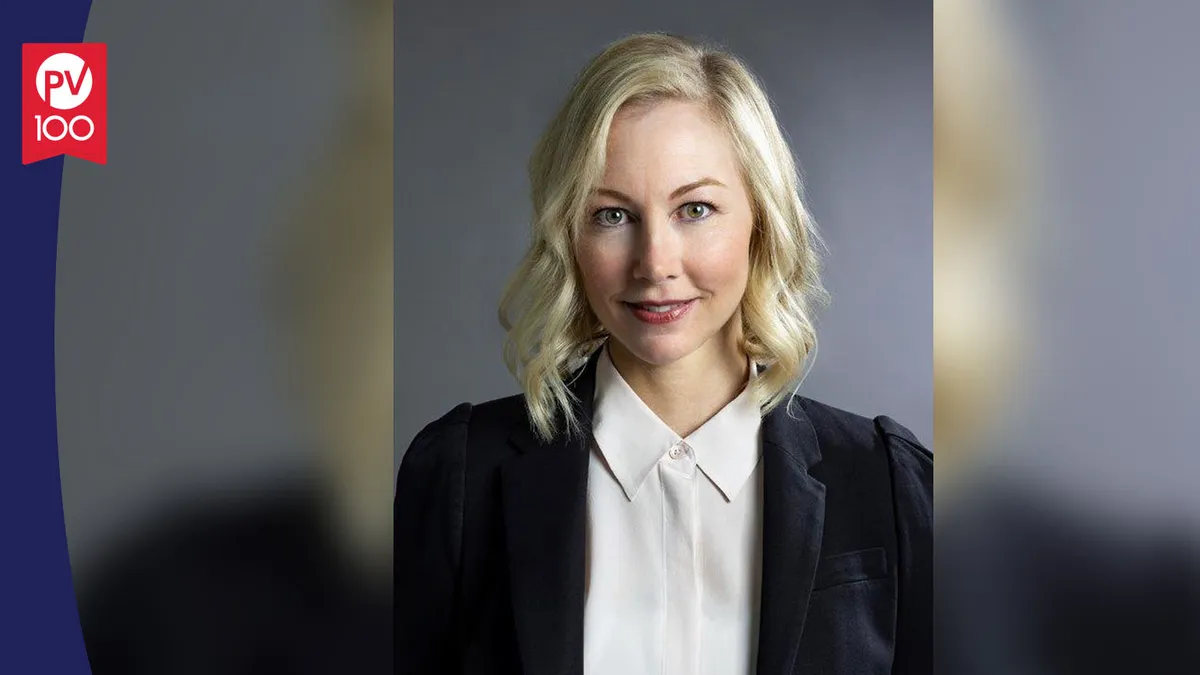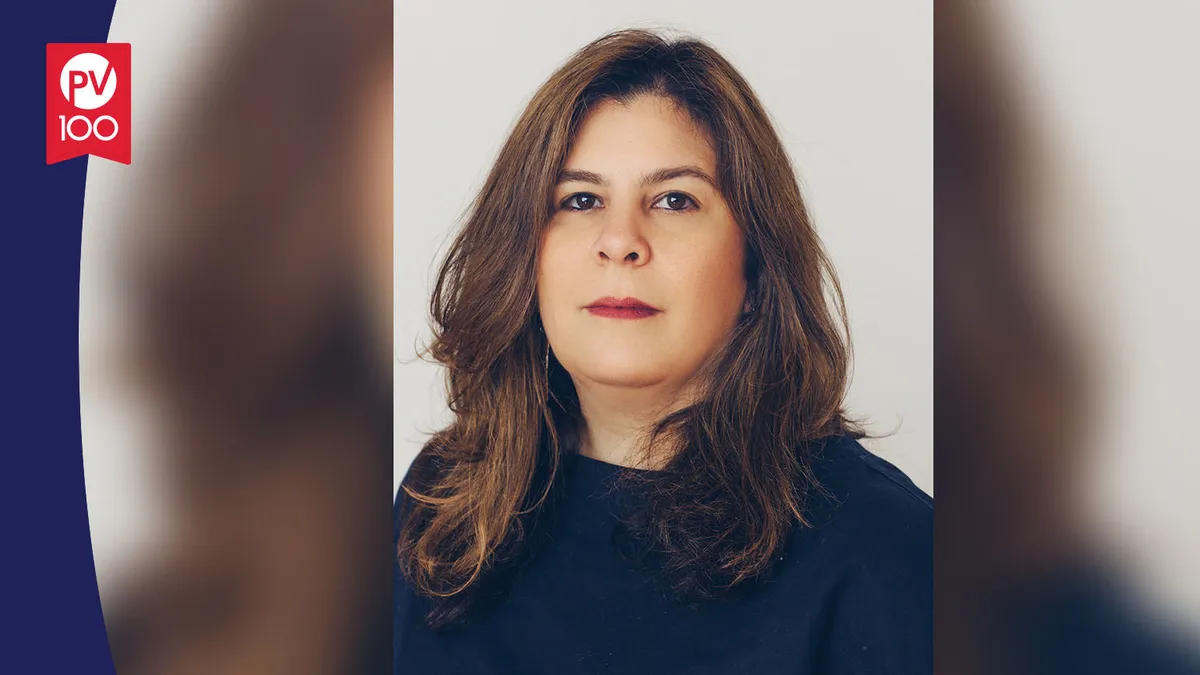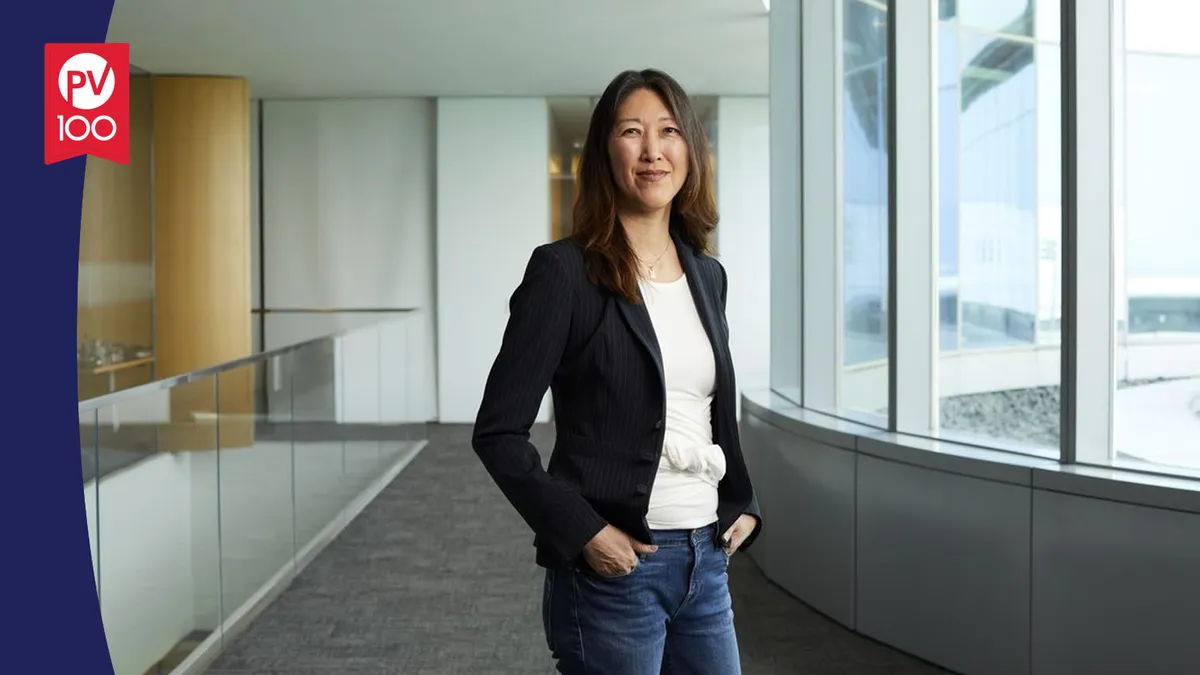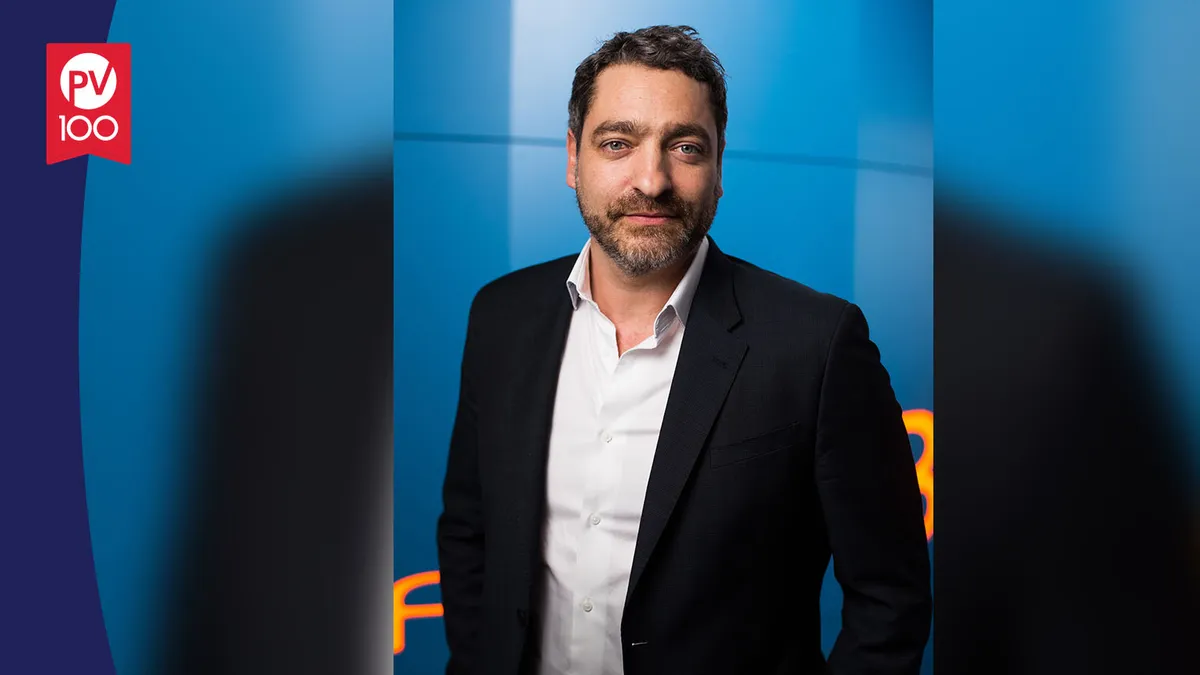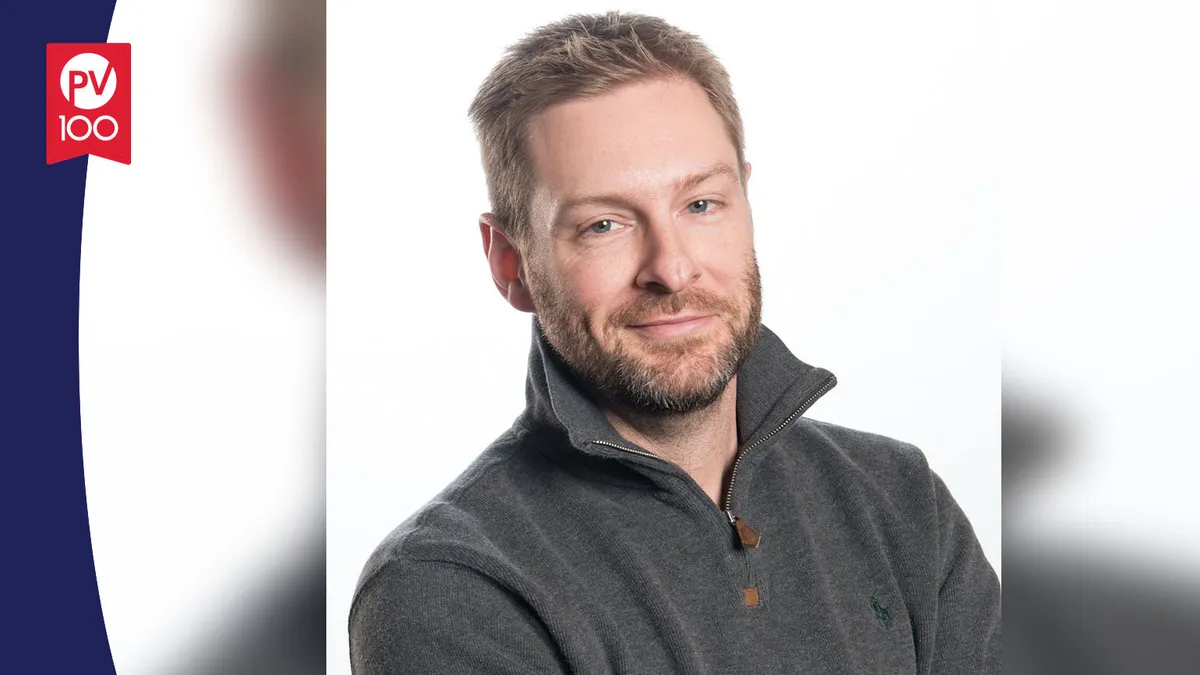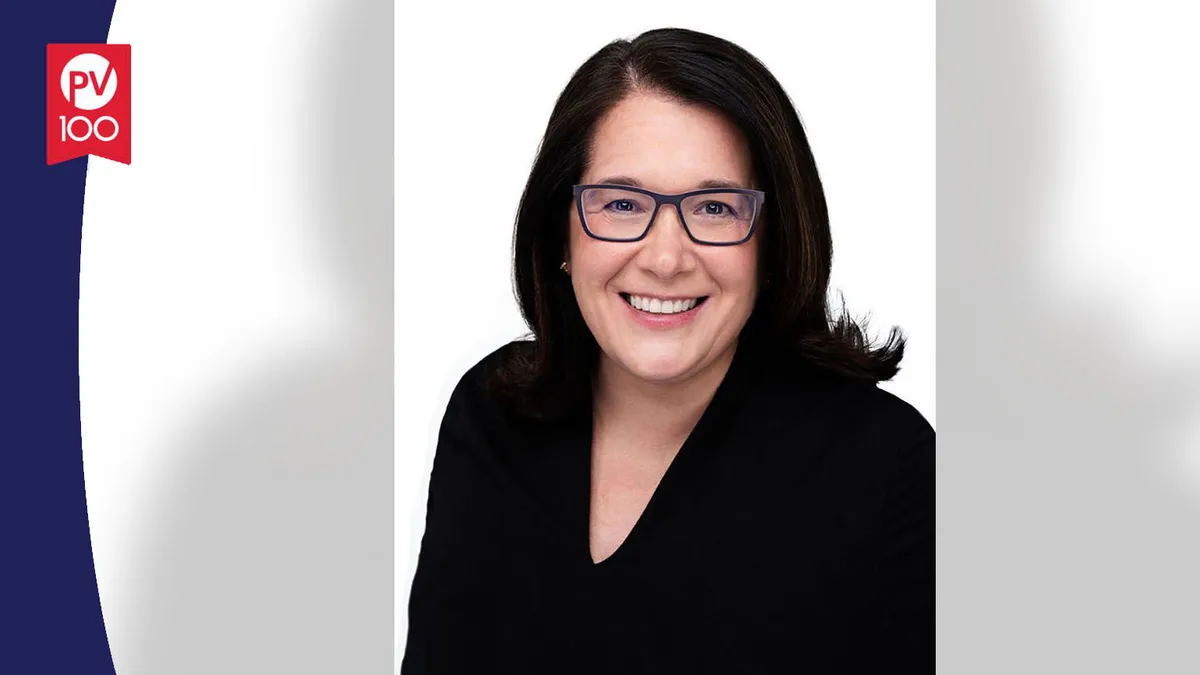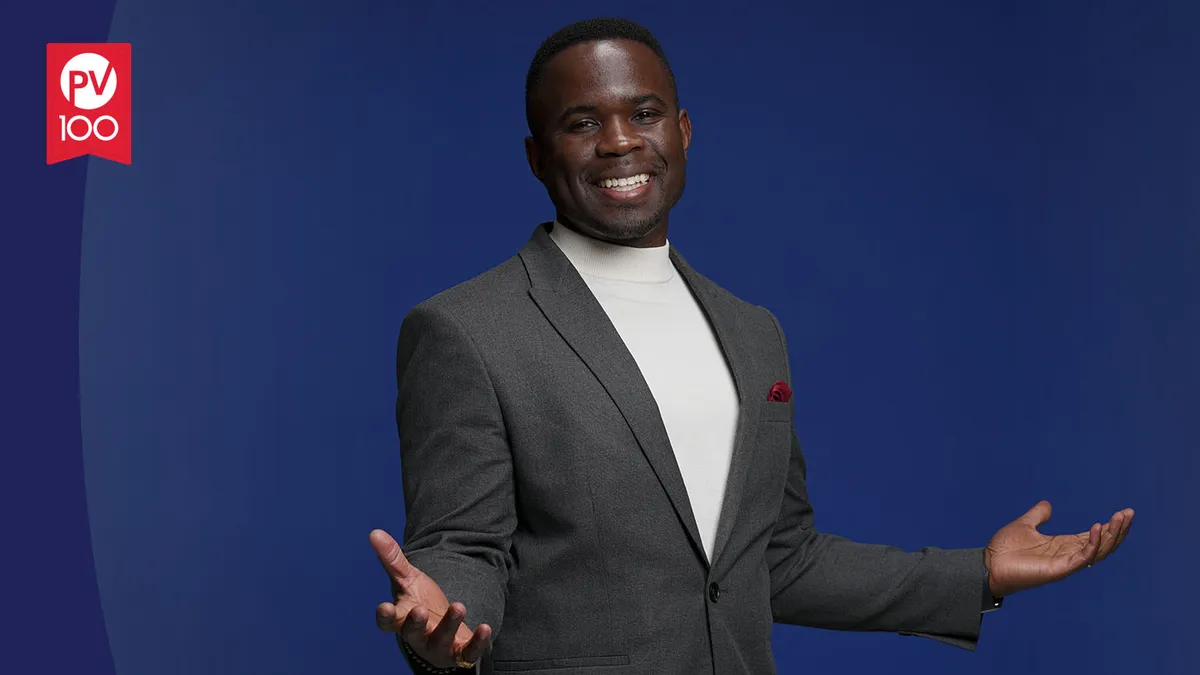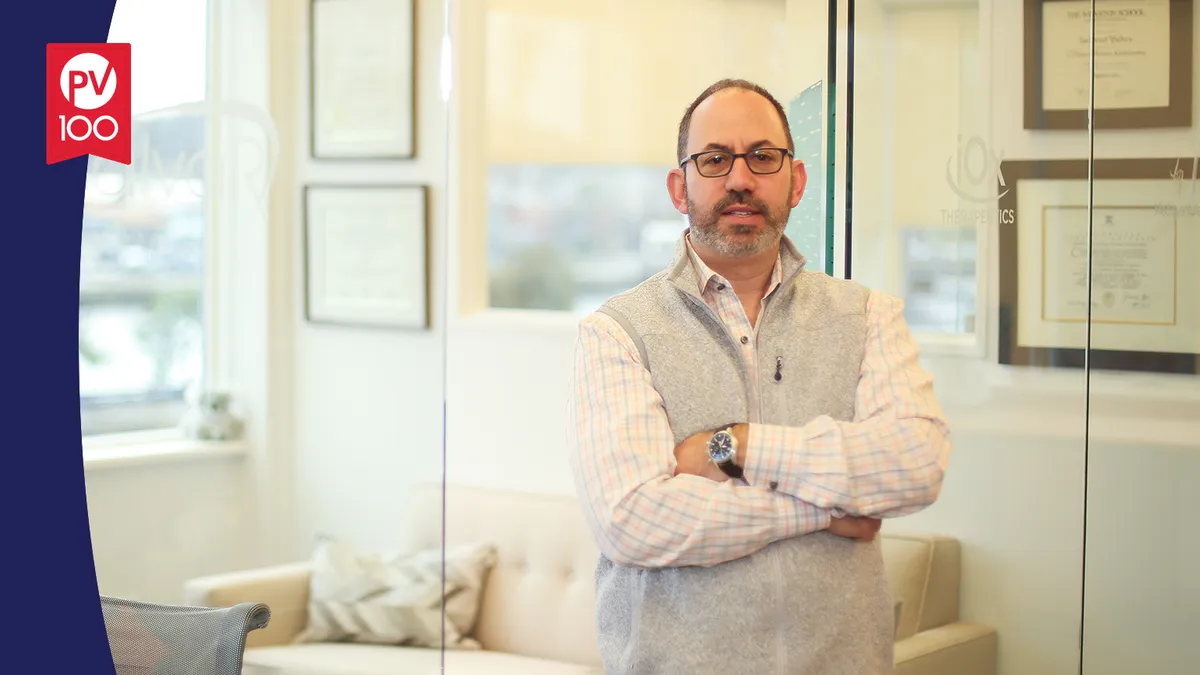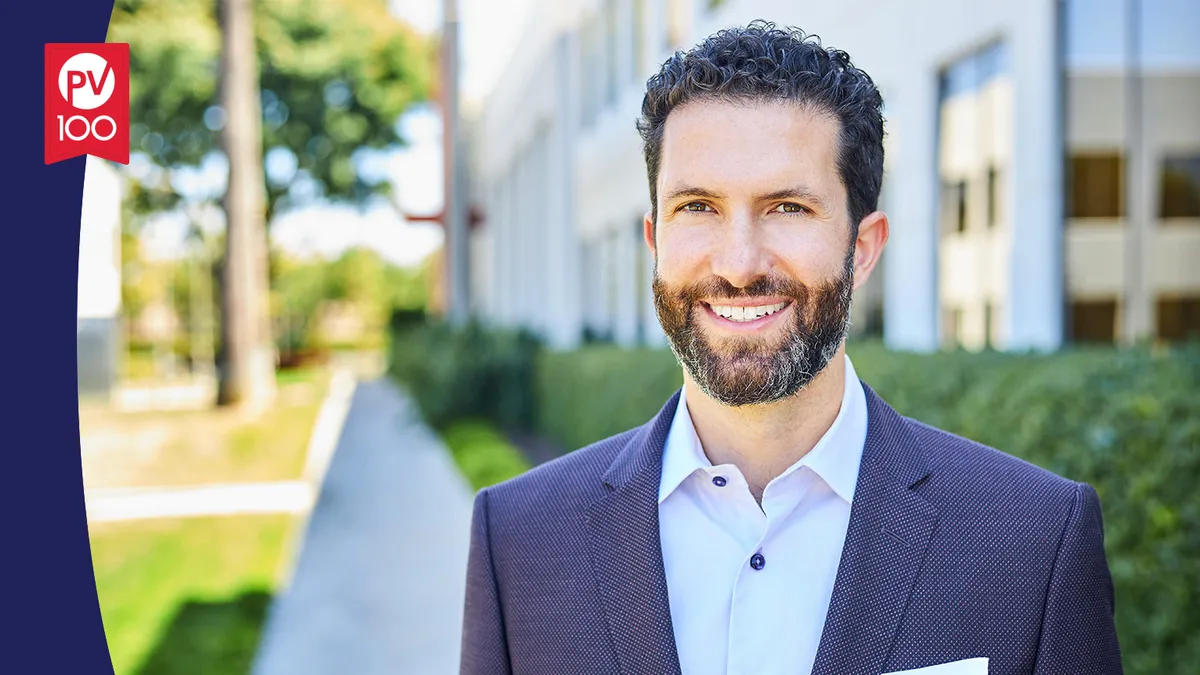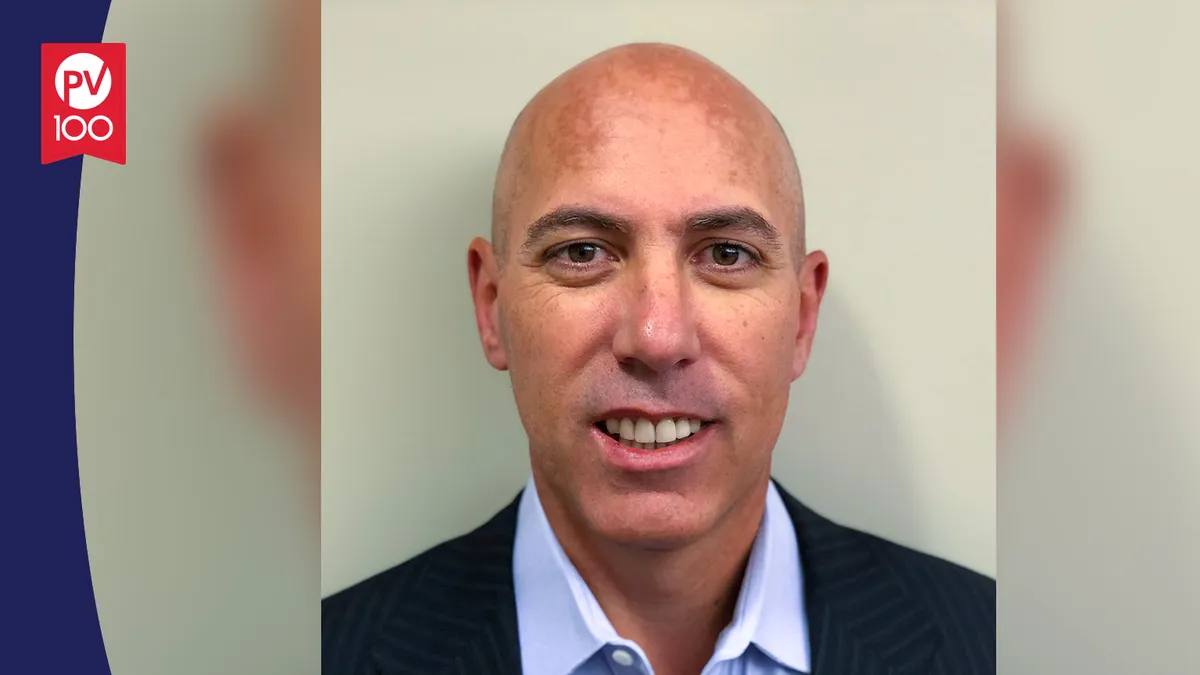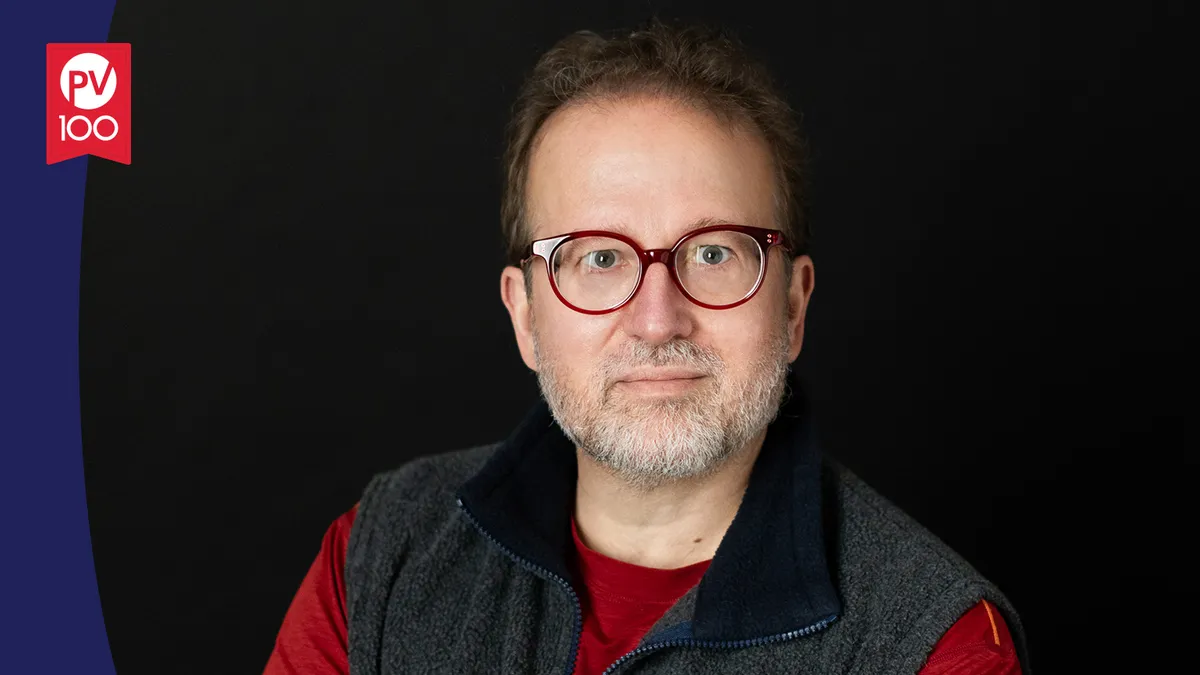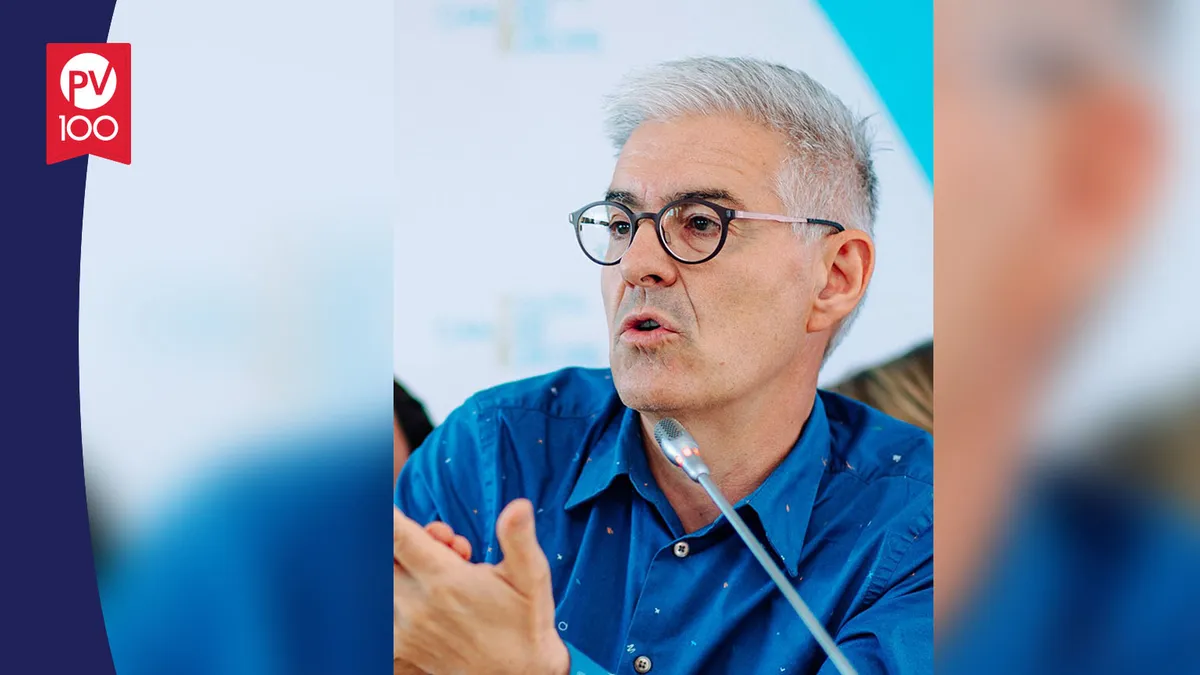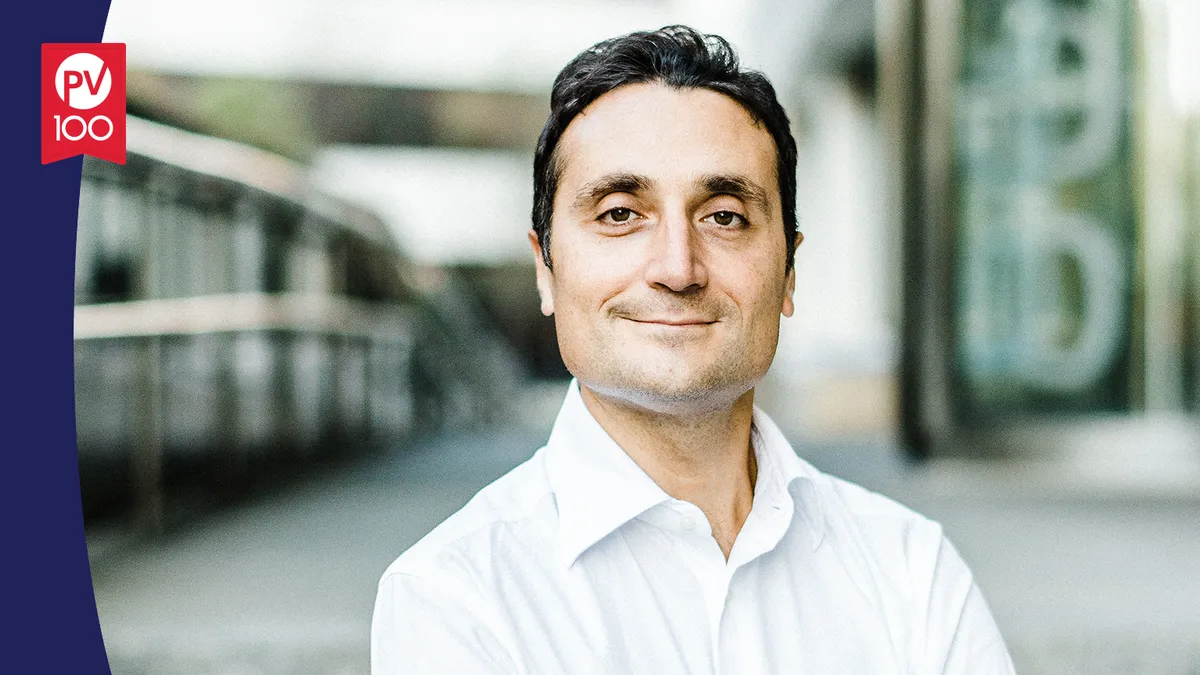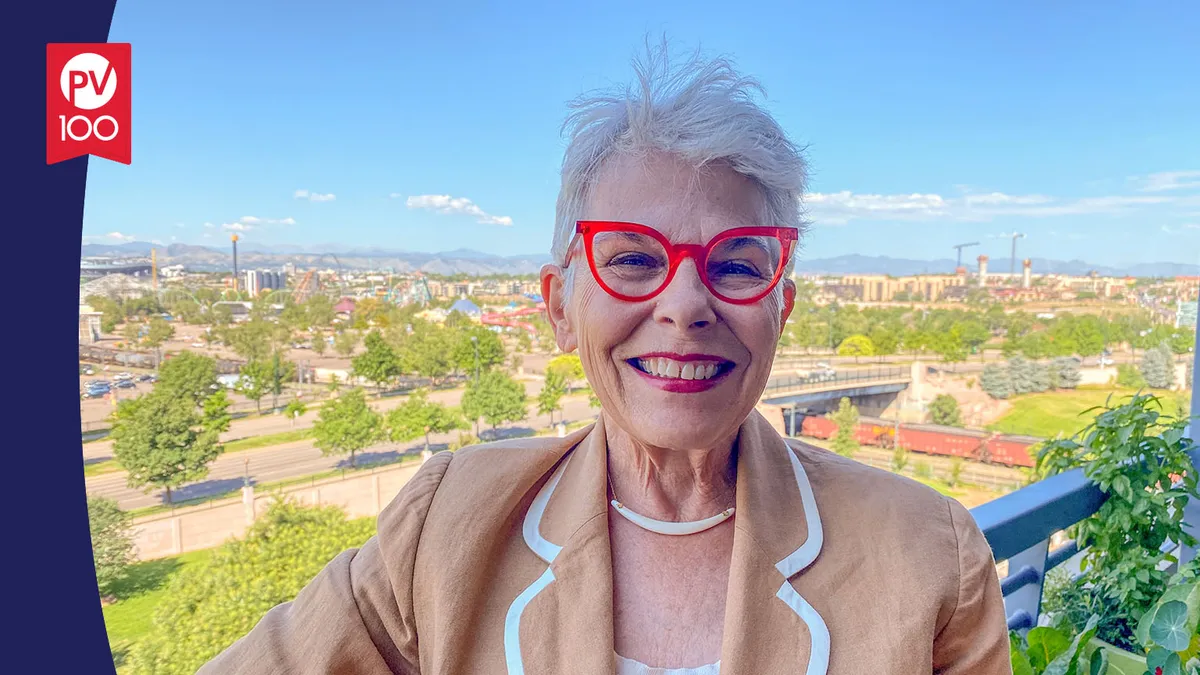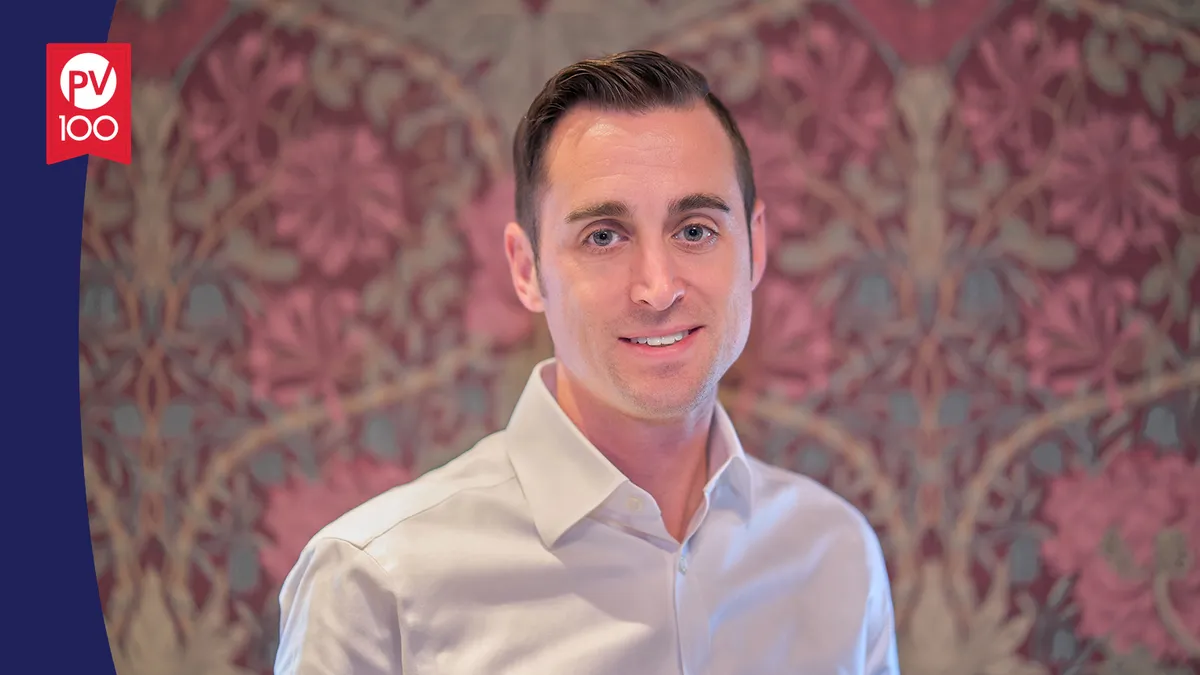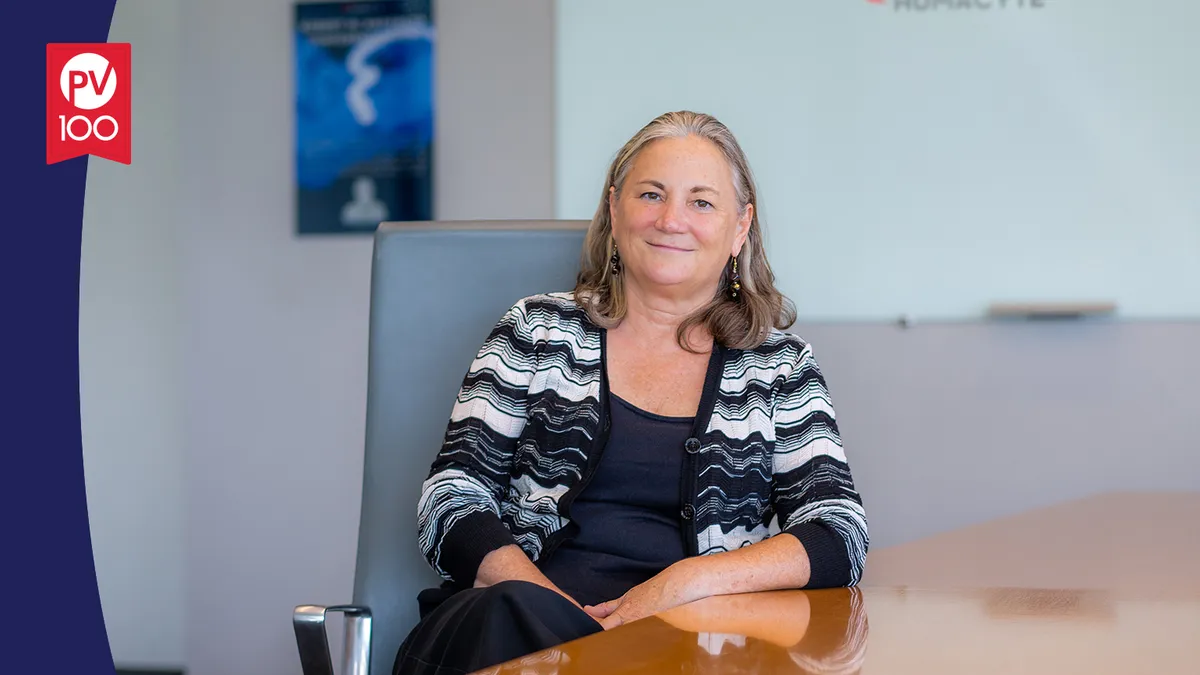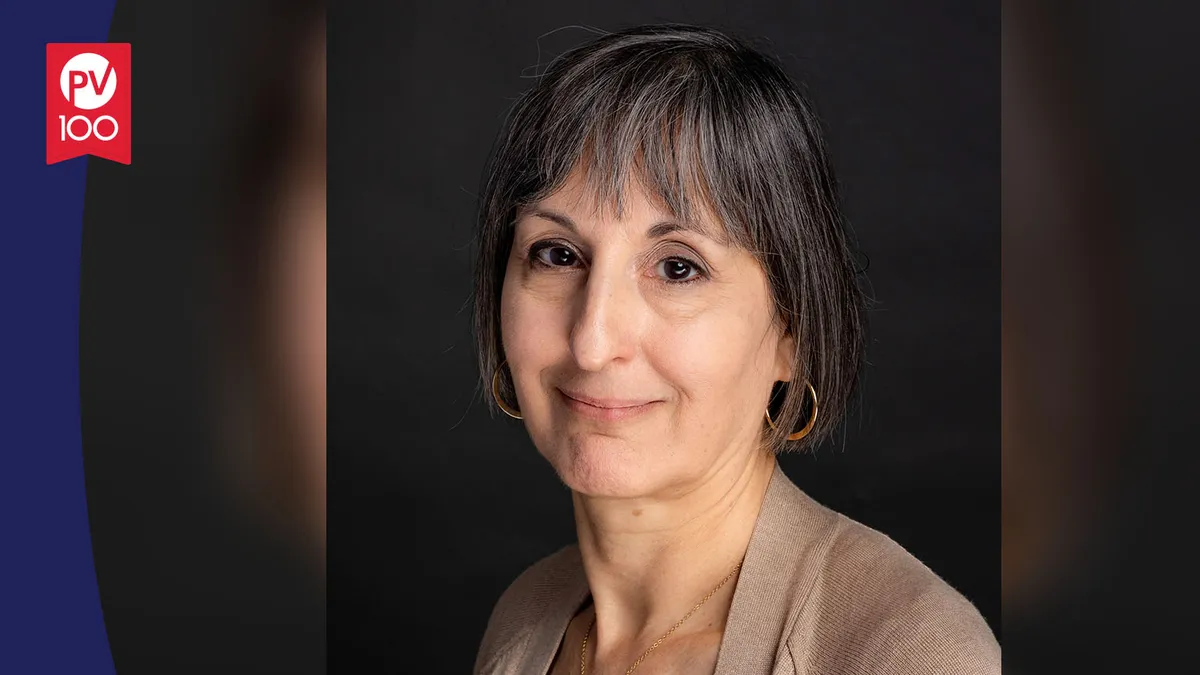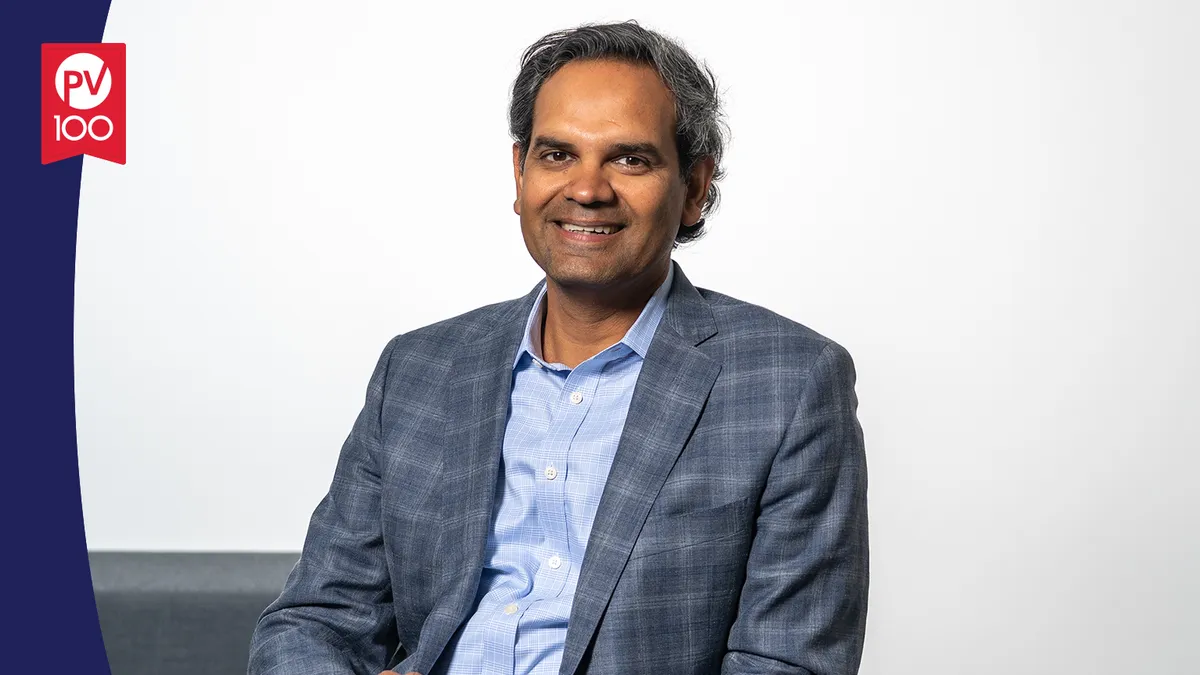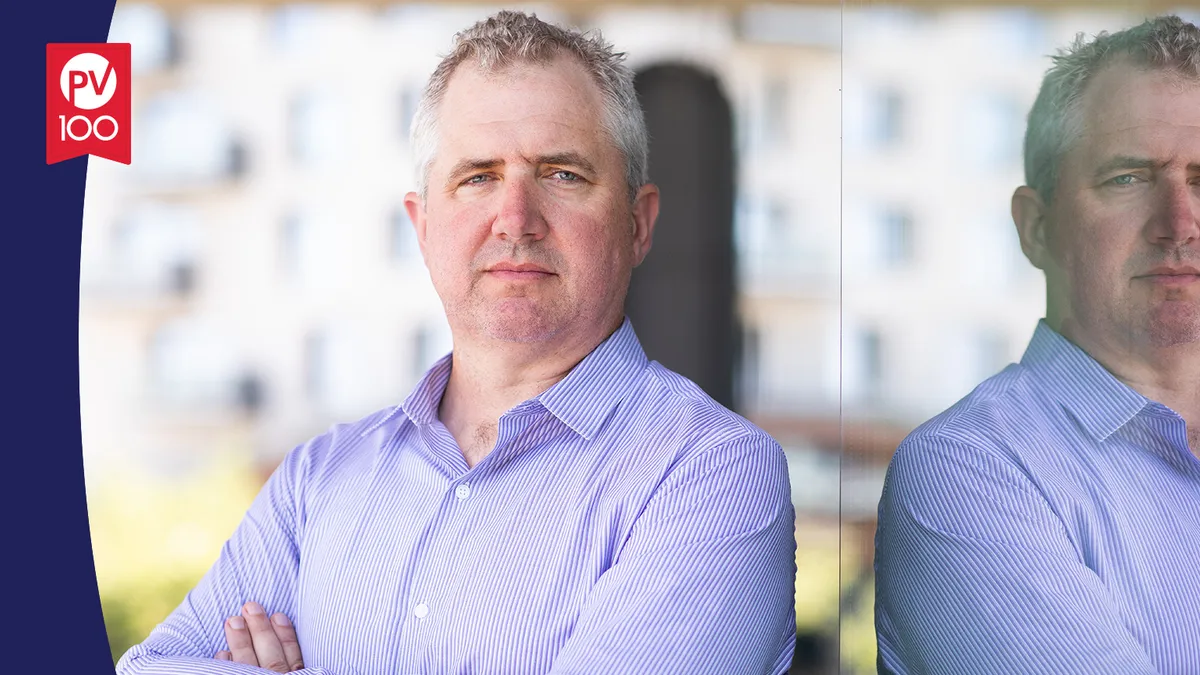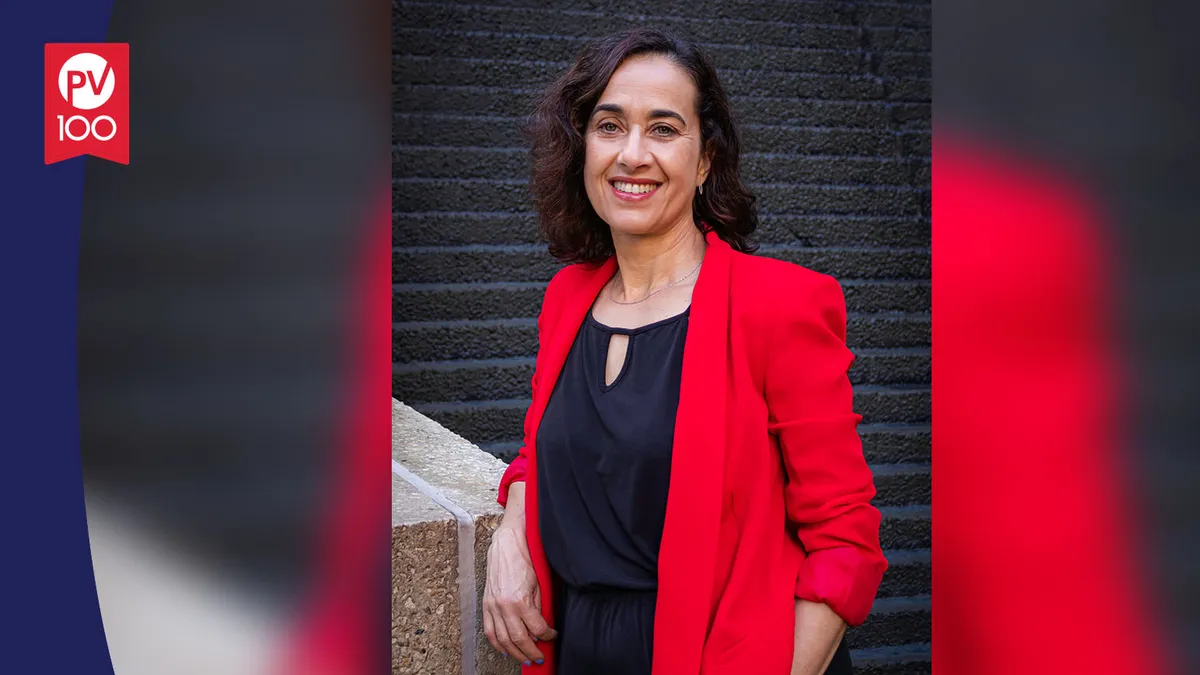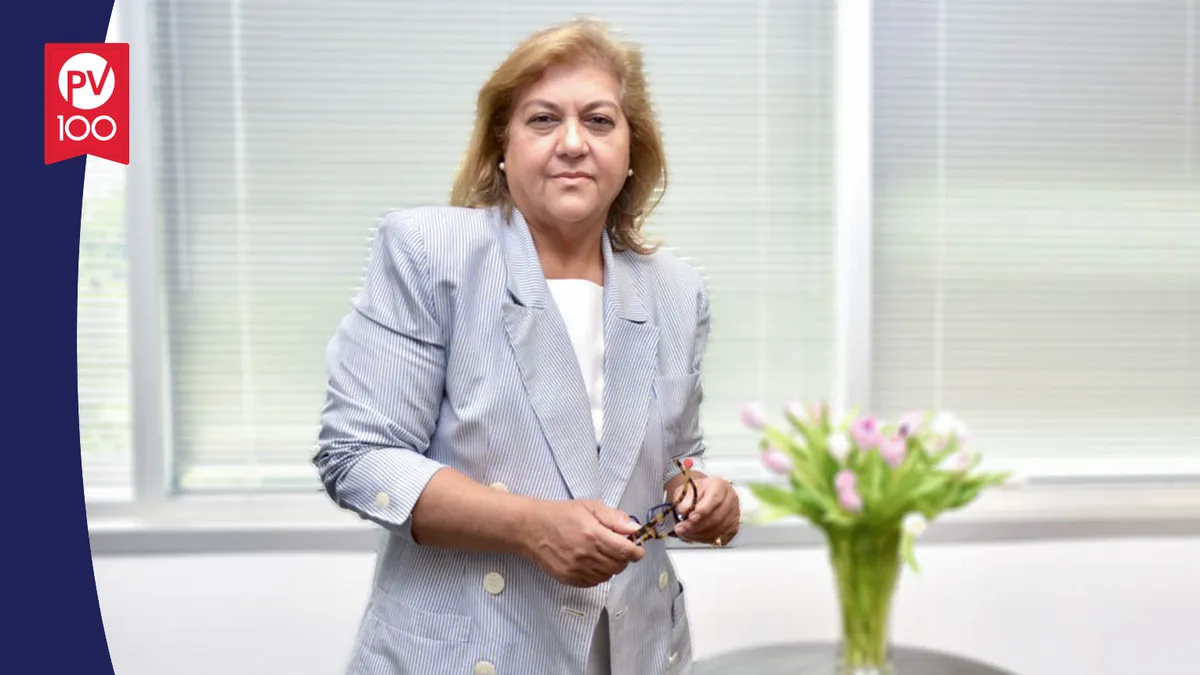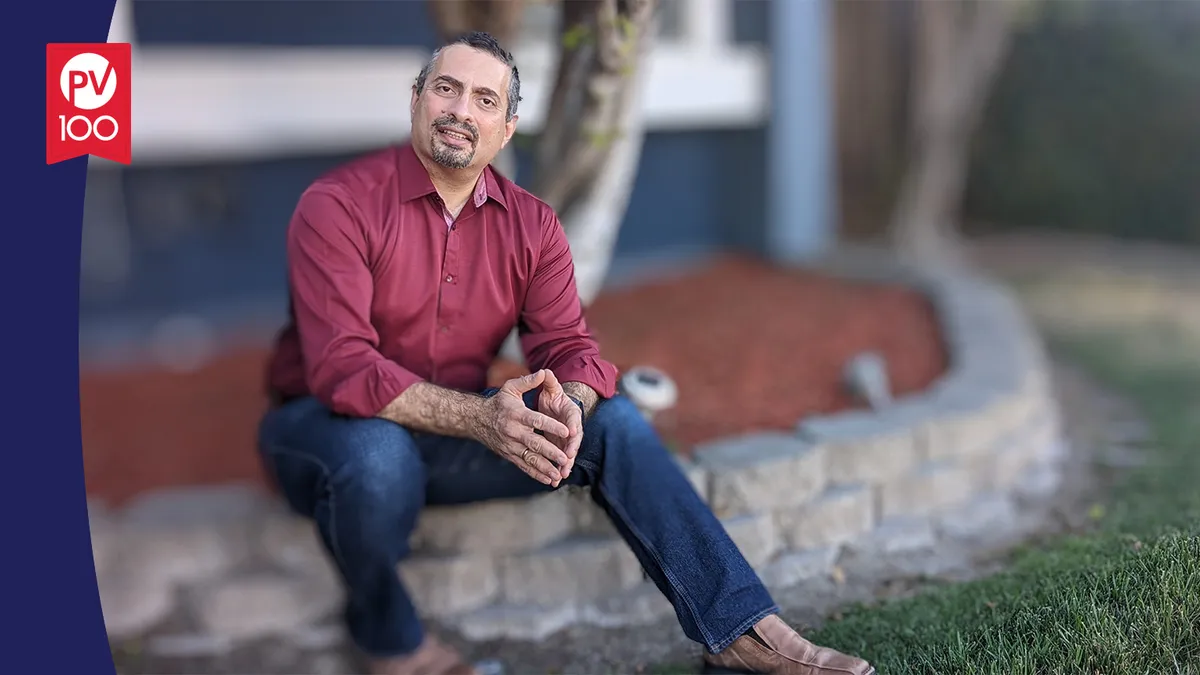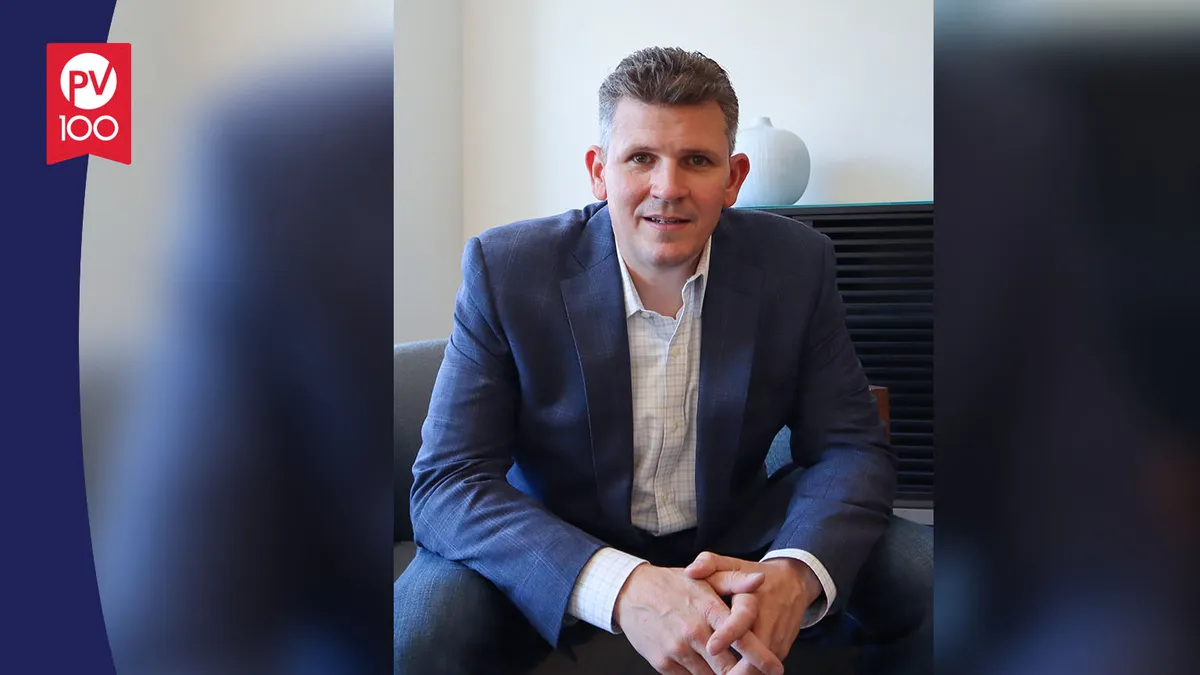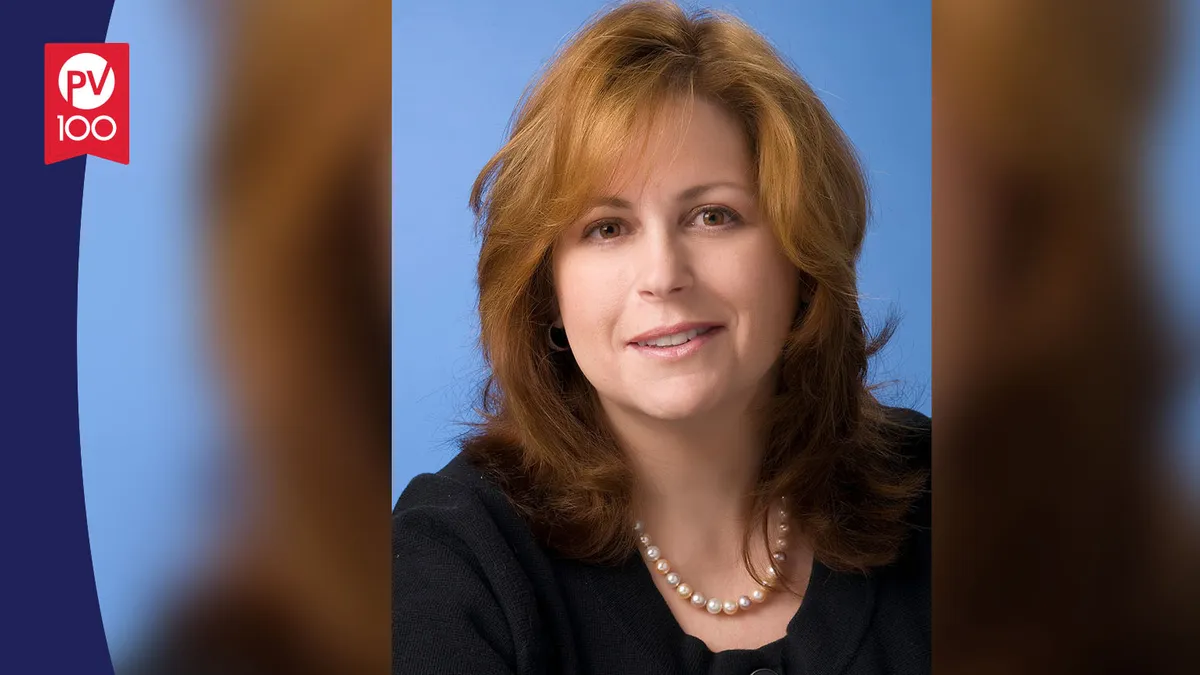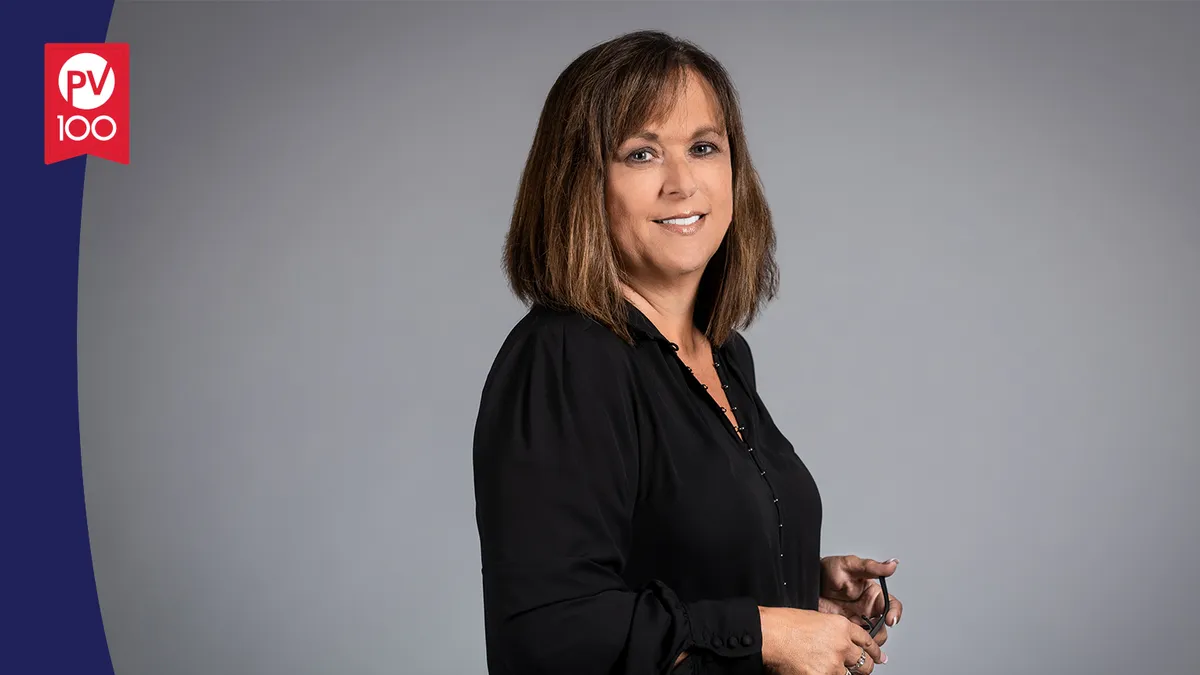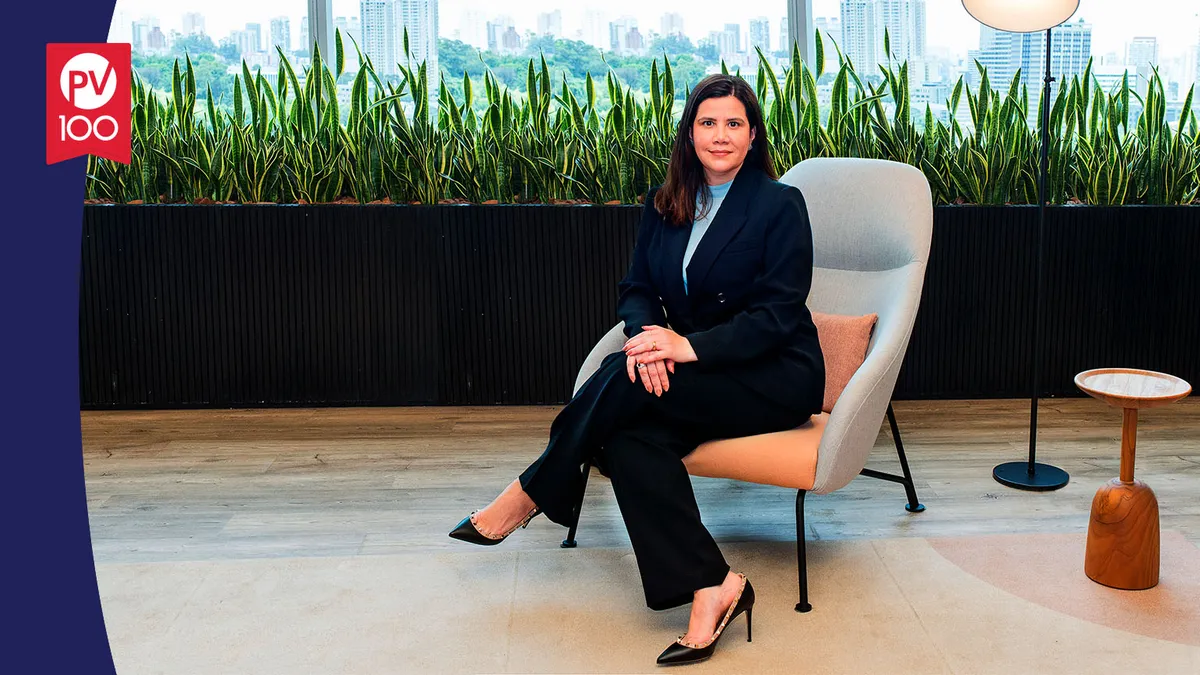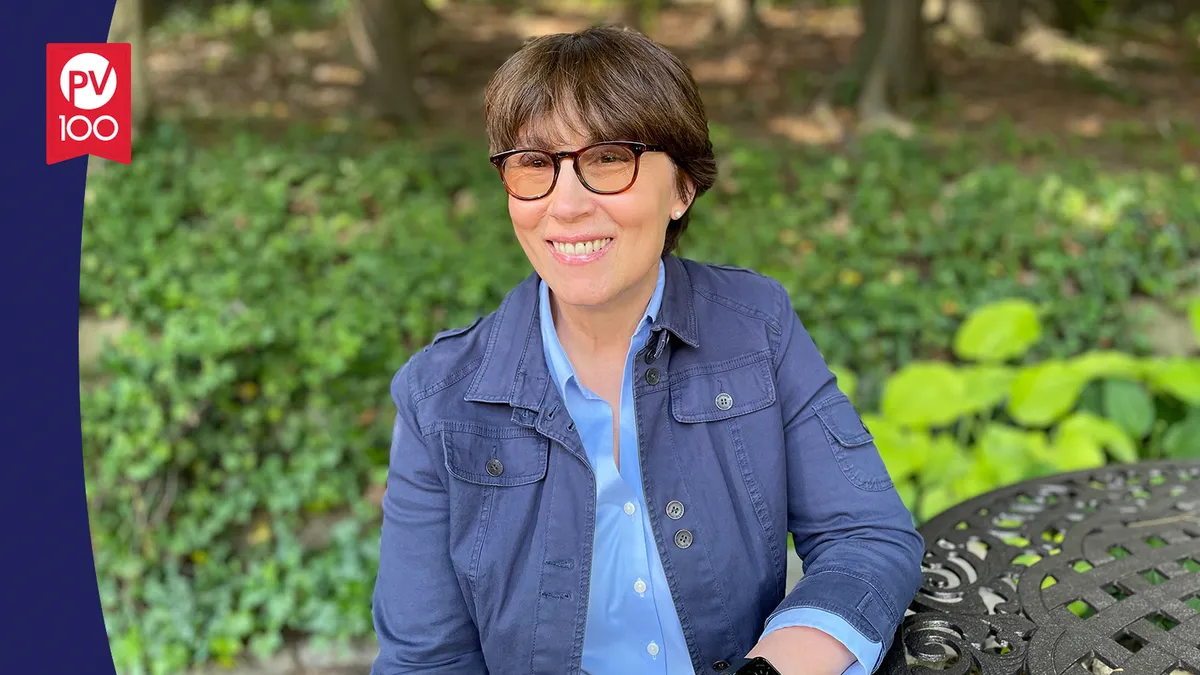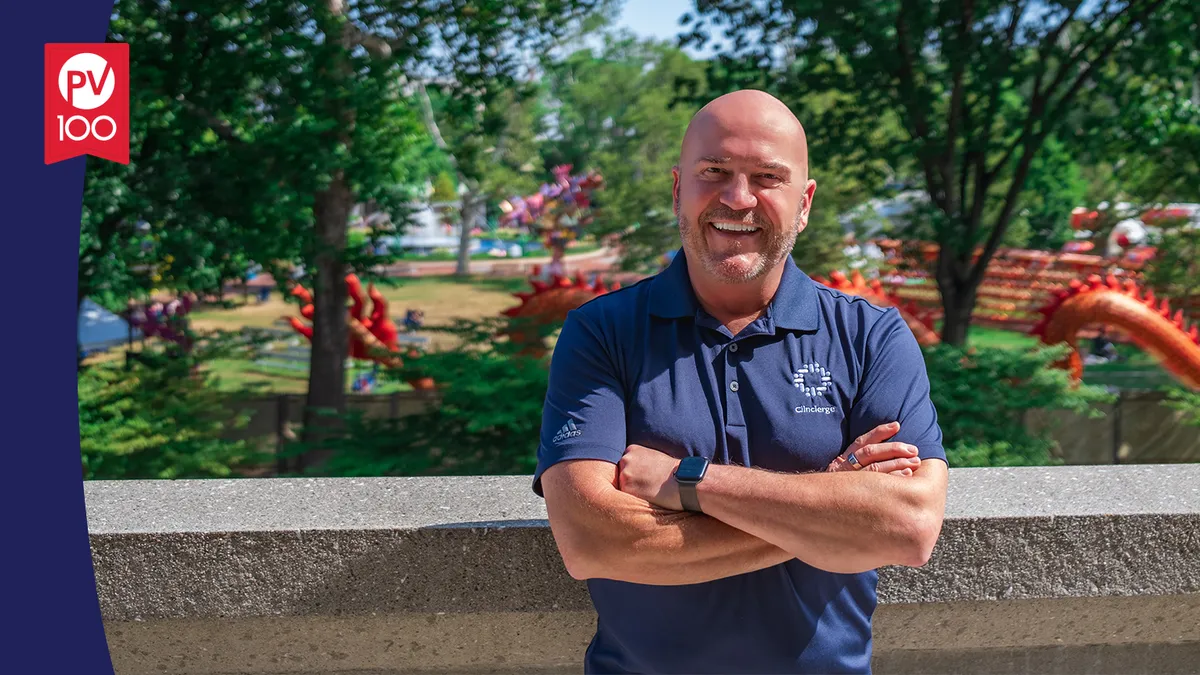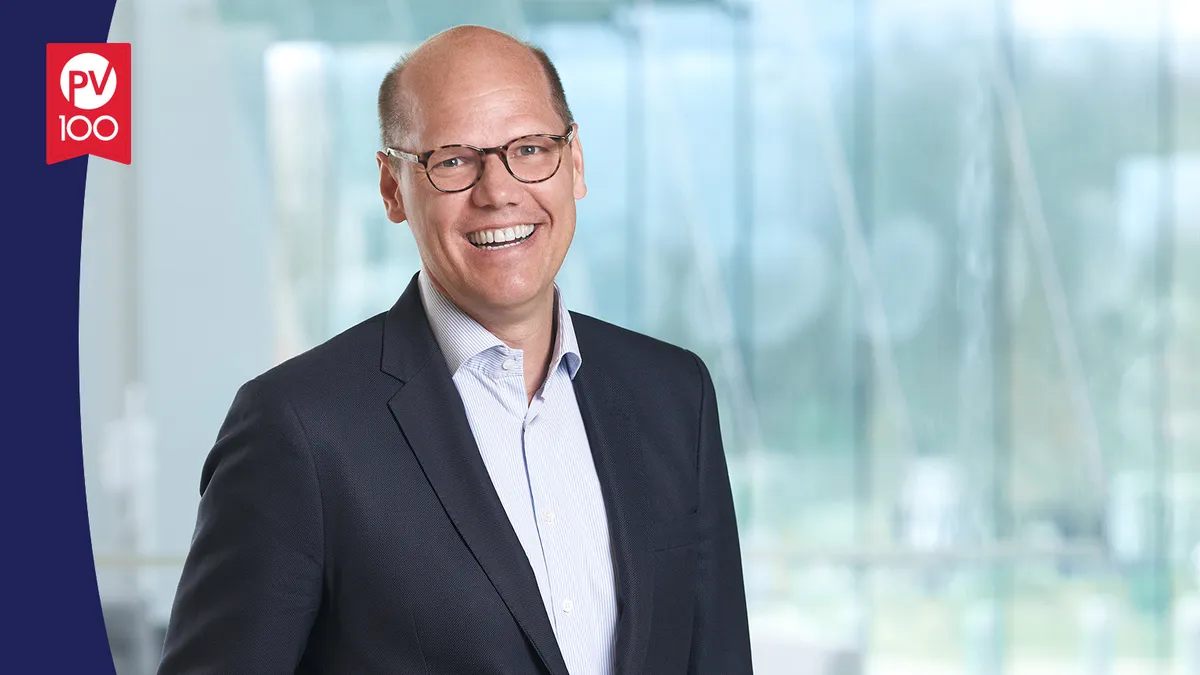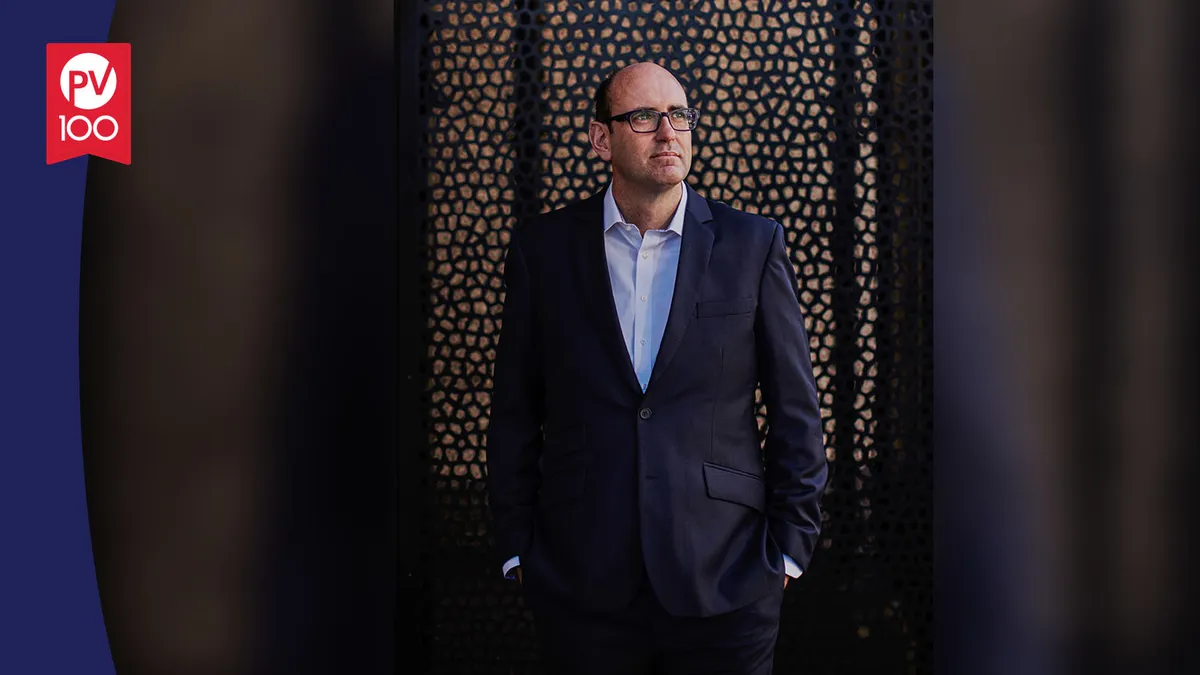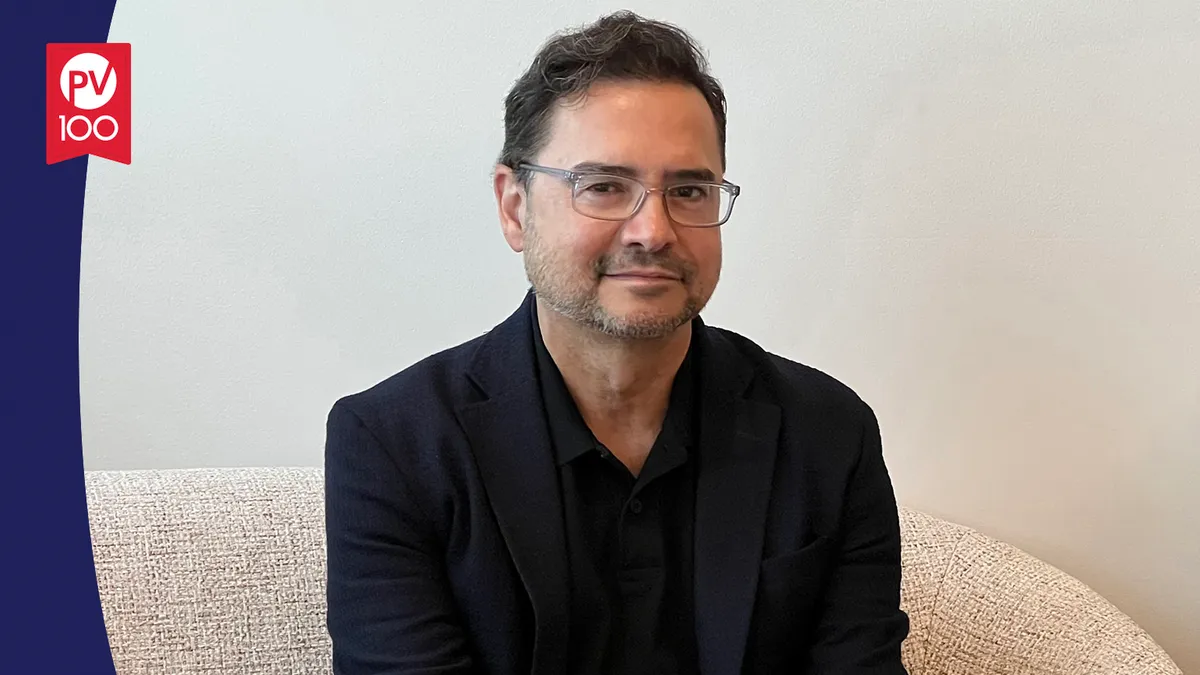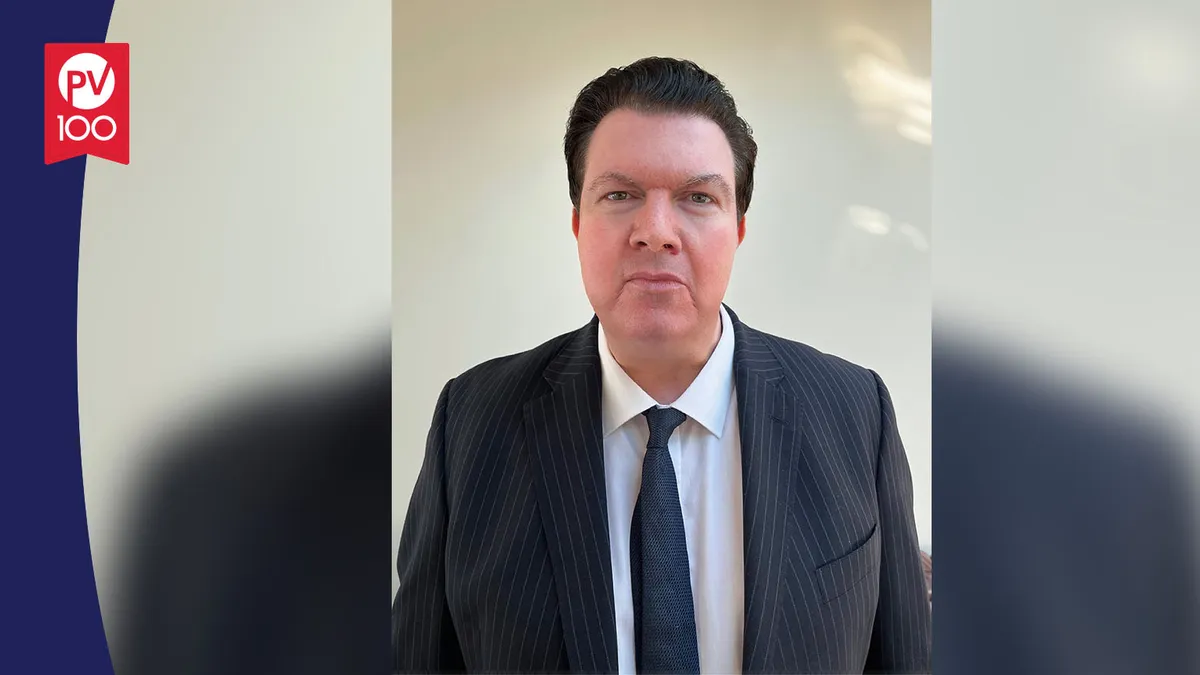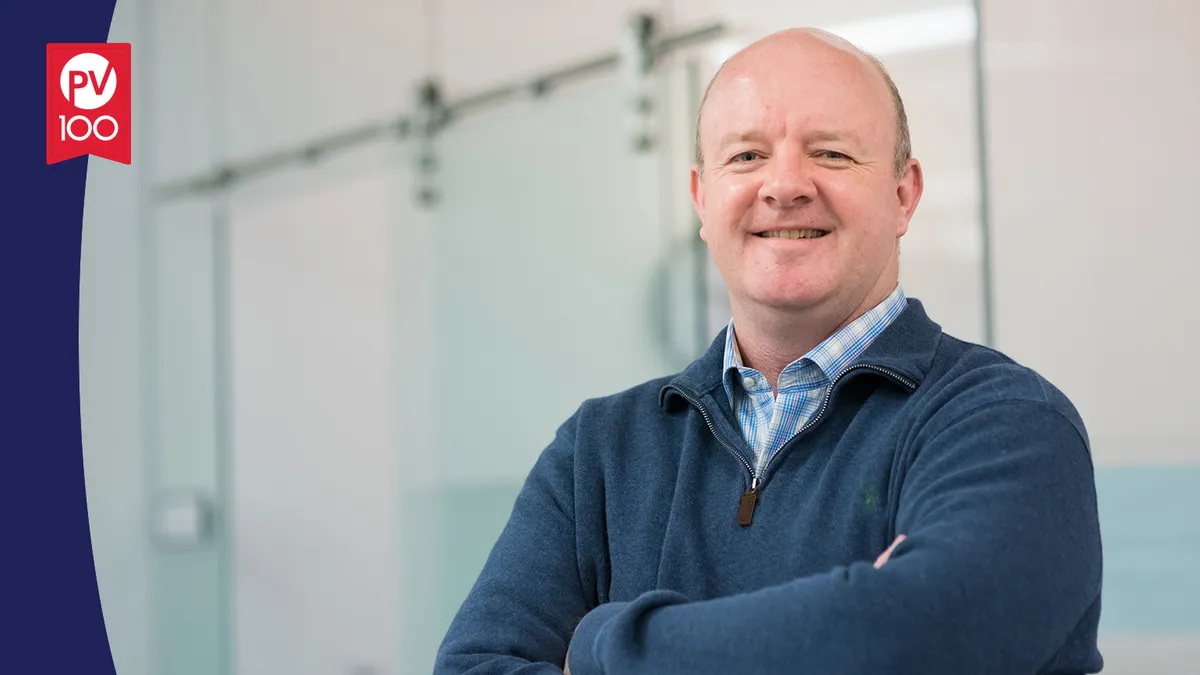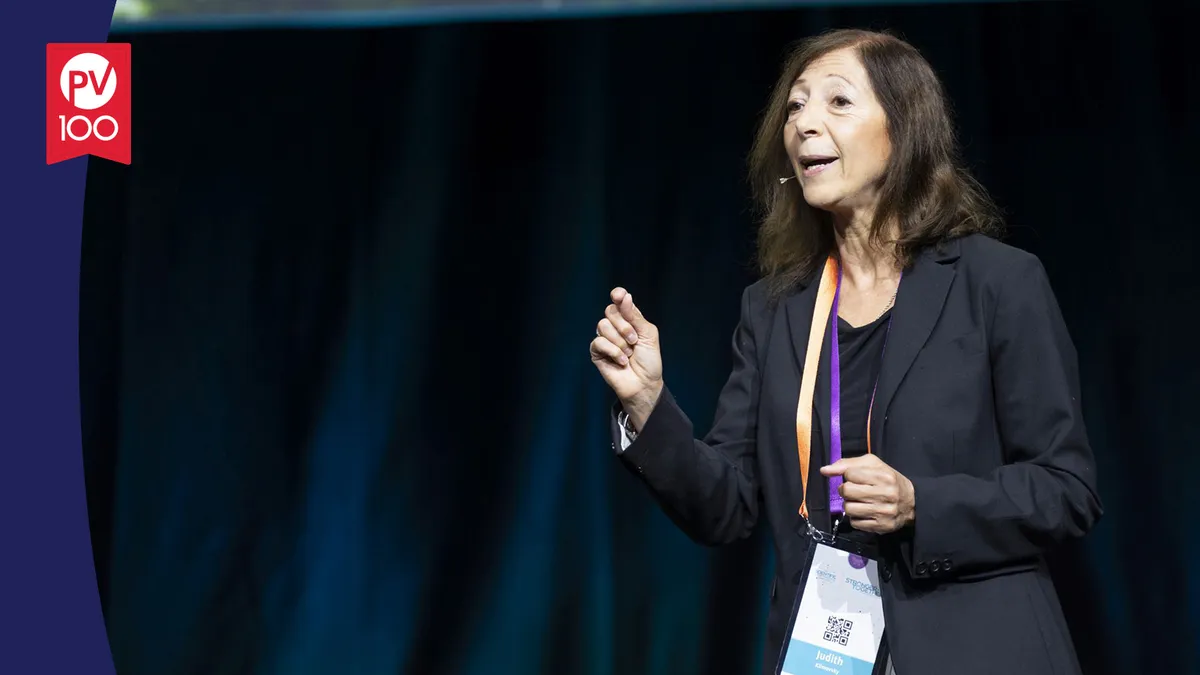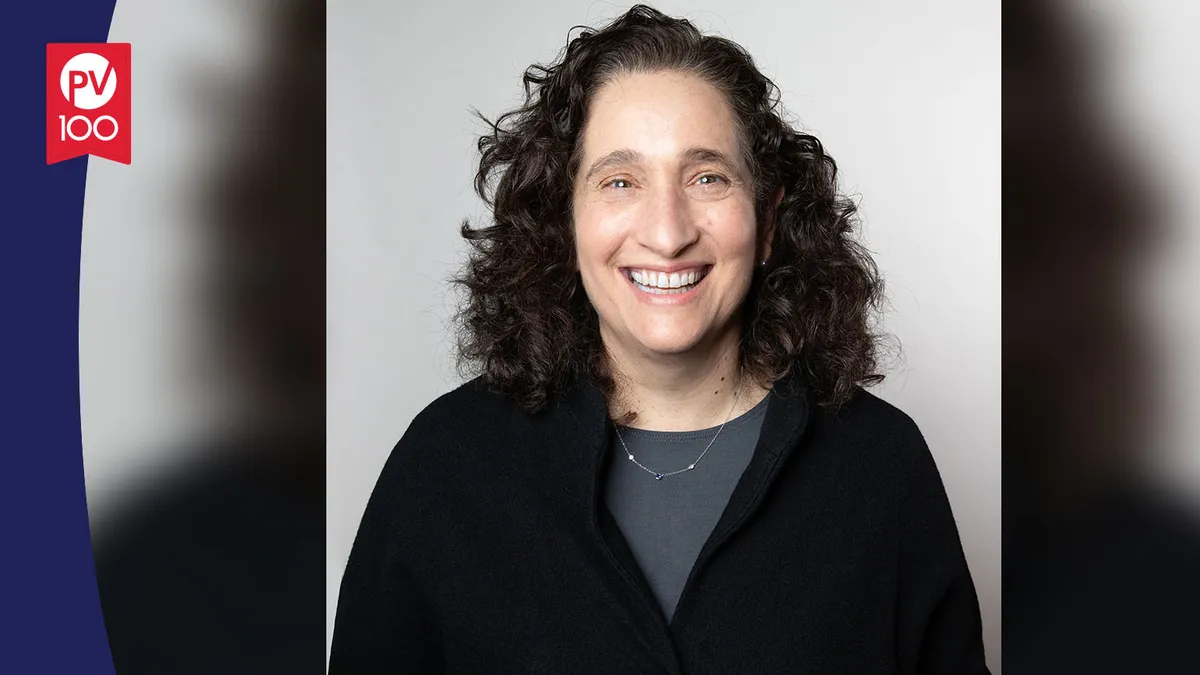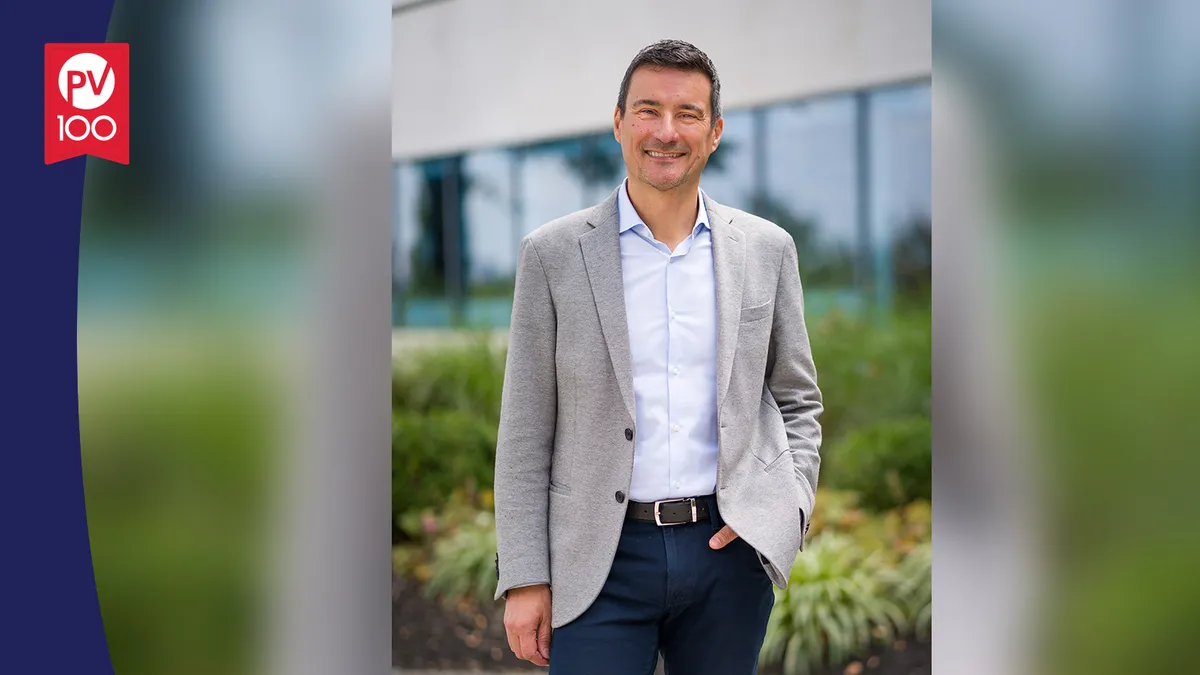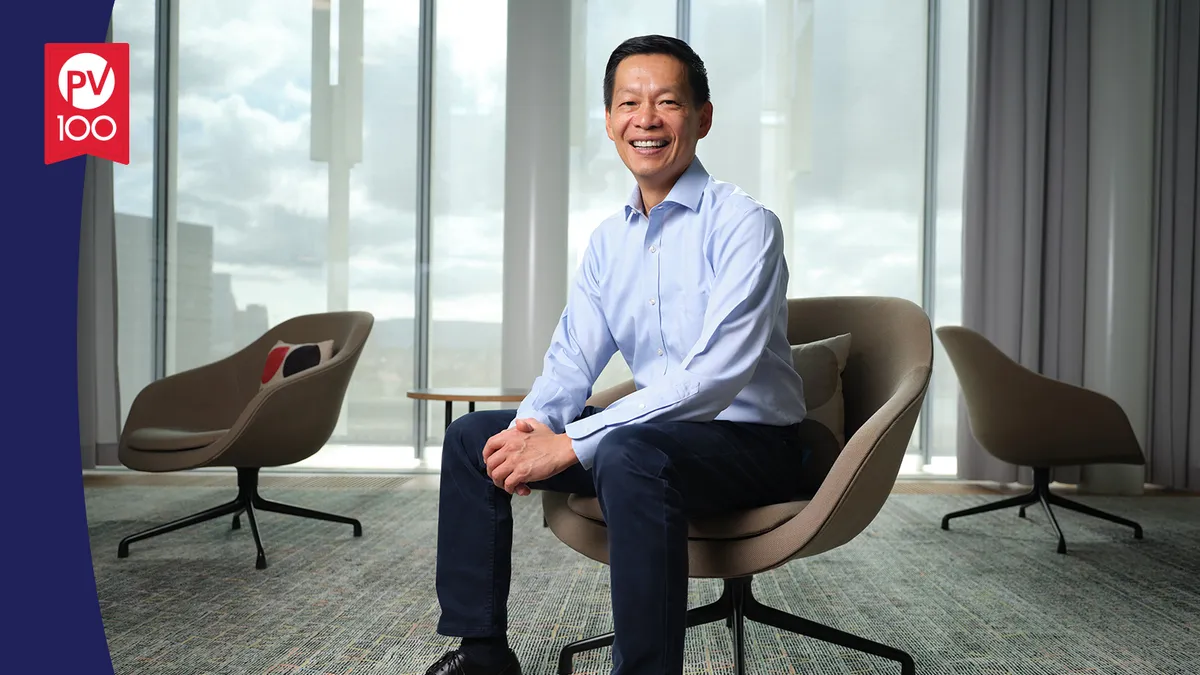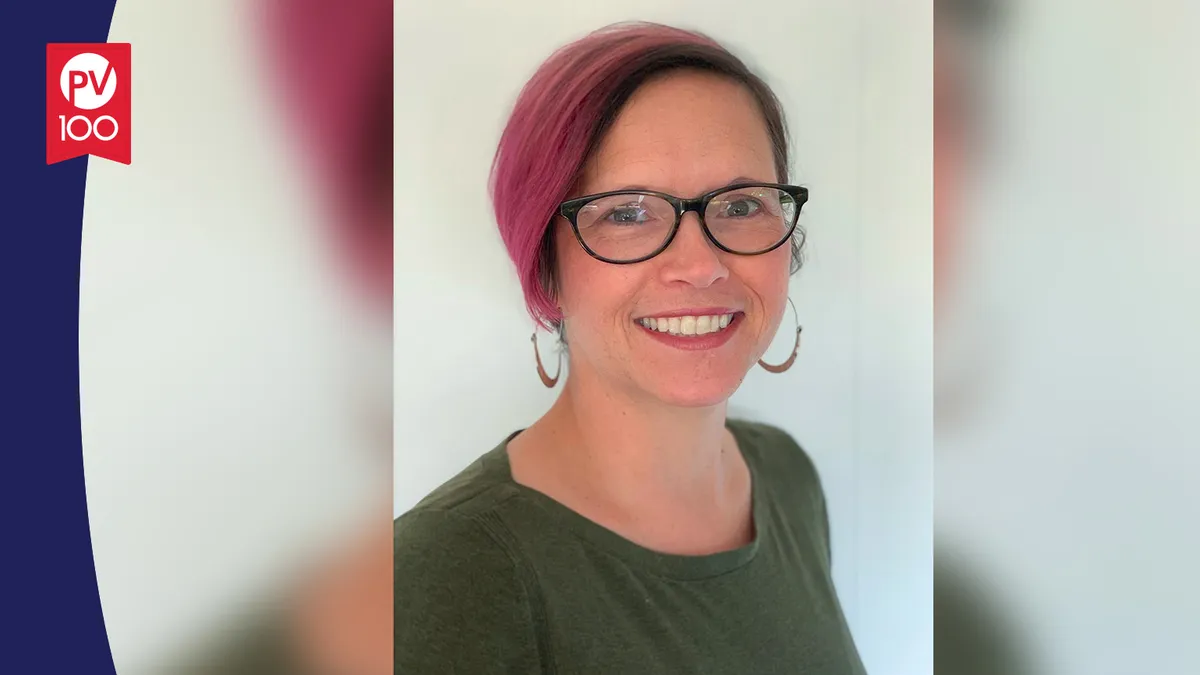Editor’s note: This story is part of our 2022 PharmaVoice 100 feature.
An eight-foot mahogany sculpture, hand-carved from reclaimed wood from Cape Town, called “The Molecule of Life,” has a place of prominence in Dr. Jeremy Levin’s office. “It’s a chromosome,” he says. “It was carved in 1953, the same year Jim Watson, Francis Crick and Rosalind Franklin described the structure of a double helix.”
Levin has earned the respect of his peers for his body of work and breadth of experiences over his 30-year career as a scientist, practicing physician, biotech venture capitalist, serial biotech entrepreneur, patient advocate and leader. He has led the Biotechnology Innovation Organization (BIO) as chair and has held positions as chief executive and chairman for major biopharma companies. Today, Levin continues to galvanize and inspire his peers across the industry on matters ranging from social justice to economic incentives for innovation.
“[Levin] both embodies and transmits the values to which our industry aspires: brilliant innovation in the service of patients,” one of his nominators says. “Owing to his accomplishments, his leadership and his values, [Levin] is recognized by me and my peer CEOs as one of the most inspirational and admired representatives of our industry. Most recently, he has been serving as an important voice of the biopharma industry, encouraging nearly 900 industry leaders to pledge to economically disengage from Russia in response to its invasion of Ukraine.”
During his tenure as head of business development at Bristol Myers Squibb, Levin embarked on a broad and innovative strategy to shore up the pharma giant’s lagging pipeline, setting the company up for success for years to come.
“Levin implemented the now famous ‘string of pearls’ strategy, acquiring related assets that helped launch a new era of success for Bristol Myers and influenced business development strategy across the industry,” one of his nominators notes. “And as CEO of Teva, he led a global company literally from the middle of a war zone.”
Now, as the founder, chairman and CEO of Ovid Therapeutics, a biopharma company focused on treating brain disorders, Levin has built an “innovative orphan drug company that is poised to make a significant difference in the lives of children with rare epilepsies and other seizure-related disorders.”
In June 2022, the company announced new preclinical data that supports the robust anti-seizure activity of OV329, a next-generation GABA-aminotransferase (GABA-AT) inhibitor in development for rare adult and pediatric epilepsies. In addition to OV329, Ovid has five other compounds in the pipeline, the most advanced of which is soticlestat, a CH24H inhibitor for Dravet and Lennox-Gastaut syndromes, which has been out-licensed to Takeda for phase 3 development.
“The transaction that [Levin] structured between Ovid and Takeda was listed among the top deals of 2021 and provided Ovid with the cash to further its mission in rare epilepsies,” one of his nominators says. “Most recently, at Ovid, he pursued a compound to treat Angelman syndrome. While this compound wasn’t successful — an inherent risk in our industry — it did spur an avalanche of interest in the disease and uncovered stories of untold suffering for both patients and their caregivers. As with many stories in biotech, the pioneer blazes a trail where others follow.”
Levin is a true ambassador for the industry. As former chair of the industry organization BIO, Levin made a large impact in representing the “industry to the public, the media and the political establishment, focusing people on practical solutions for patient access to new medicines, while preserving the biopharmaceutical innovation we need,” a nominator says. “[Levin’s] leadership style is inclusive. He solicits ideas from all who sit at the table and appeals to people’s sense of mission in achieving worthy goals that contribute meaningfully to our fellow human beings. He challenges us all to conduct ourselves as an industry in accordance with the values inherent in the practice of medicine; this includes ensuring that our ranks represent the populations we serve, inclusive of gender, race, ethnicity, sexual preference and other identifiers. His many accomplishments and talents notwithstanding, Levin comports himself with the humility of one who understands deeply that the care of patients is a sacred trust, and that even the most gifted physician finds that their skills fall short of the intricate challenges posed by human biology and disease.”
Raised in South Africa under two different dictatorships, Levin has a unique view of the global perspective of healthcare, as well as world affairs, politics and “how fragile our liberties are unless we take a stand in their defense,” another nominator says. “Consequently, [Levin] is an activist, in the best sense of the term. He inspires those around him — me included — to be activists as well.”
Here, Levin shares his leadership philosophy, what’s ahead for clinical development in neuroscience and how he is paying his success forward.
PharmaVoice: How do you look at your role as an industry leader?
Dr. Jeremy Levin: Addressing issues that affect various constituencies, all in different ways, can be challenging — particularly on topics that are increasingly unprecedented and polarizing. It often requires great sensitivity to arrive at a position within a single company, let alone an industry filled with thousands of companies.
Though it’s easier for status quo and inertia to prevail, I believe CEOs have a dual role as activists. We have been called upon to lead, and this means leading on matters that impact our business, our employees and our communities. I believe change typically starts with a small group of individuals being willing to use their voice. Sometimes it may invoke opposing views, but that’s a risk worth taking.
As a leader, you are only as successful as the people with whom you surround yourself. You hand-select them, guide them and ensure they have what they need to be successful. You must demonstrate absolute passion, absolute commitment and absolute willingness to think differently and expect the same of others. Most importantly, you must have a purpose — a north star for the company and a unifying thought of what the team wants to accomplish.
Trust your team. As a CEO, there are always competing demands for time, attention and resources. When I am surrounded by a team of accountable, high-performing professionals in whom I trust, I have the space to engage in industry and policy matters and focus on advancing Ovid’s vision.
What keeps you up at night?
In our lifetime, we have the potential to realize a CNS moonshot. Neuroscience is at the precipice of a revolution wherein our understanding of the intricacies of the brain will rapidly advance. As we learn more about the underlying etiology and pathology of certain conditions, we begin to understand how these medicines work on the underlying processes and targets.
Armed with this knowledge, we in the industry have an opportunity to precisely treat previously intractable diseases of the brain. Clearer biomarkers, targets and mechanisms of action are making way for small molecule therapies and novel genetic medicines to advance.
“In our lifetime, we have the potential to realize a CNS moonshot. Neuroscience is at the precipice of a revolution wherein we are rapidly advancing our understanding of the intricacies of the brain.”
Dr. Jeremy Levin
Founder, chairman and CEO, Ovid Therapeutics
At Ovid, this opportunity is directly tied to our mission to develop medicines that meaningfully improve the lives of people affected by epilepsy and brain disorders. This vision is what keeps me up at night — what keeps all of us up at night: conquer seizures.
What is your blue ocean?
I expect neurotherapeutics to evolve similarly to how immuno-oncology medicines exploded 10 to 15 years ago. We are at a similar inflection point in neuroscience where large and small developers can contribute to an overall growing body of science that has positive implications for people who have few or no treatment options, or for whom the current standard of care is not sufficient.
At Ovid, we do this by focusing on medicines with known targets and novel mechanisms of action to build a pipeline of potential best-in-class and first-in-class medicines. This is made possible, in part, by advances in DNA sequencing and screening that have accelerated the identification and characterization of underlying genetic mutations. By studying epilepsies — which are very diverse, with 1,000-plus different gene mutations associated with epilepsies — we can begin to understand how to intercept and treat a range of conditions.
On the horizon, our strategy is getting large molecules past the blood brain barrier. The future of neurotherapeutics is a combination of these principles.
We sit at the opening act of that movement now. Increasingly, investors have demonstrated a willingness to fund the “actionable challenges” to make theoretical neuroscience a reality. In 2020, the global neuroscience market reached over $30.8 billion, and the U.S. saw the highest sum in at least the last decade with more than $2.32 billion being invested in neuro-focused biotechnology companies. We are incredibly optimistic that the era of neuroscience is here and that, at least, we will be able to make a meaningful difference in the lives of people and families affected by neurological diseases.
How are you paying your success forward?
The profound privilege of being in a leadership position means I have the opportunity to contribute to the dialogue around important issues of our time — a responsibility I take seriously. Earlier this year, I joined other industry leaders and Global Genes to establish a humanitarian fund to bring relief to displaced refugees in Ukraine. I’ve also spoken publicly about the need for improved gun legislation. Most recently, I joined my peers in Washington, D.C., to educate our elected officials about potential negative ramifications of their drug pricing bill.


